319 papers:
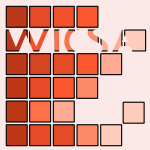 WICSA-2015-TamburriN #architecture #social
WICSA-2015-TamburriN #architecture #social- When Software Architecture Leads to Social Debt (DAT, EDN), pp. 61–64.
 DATE-2015-PozoSKM #question
DATE-2015-PozoSKM #question- Side-channel attacks from static power: when should we care? (SMDP, FXS, DK, AM), pp. 145–150.
 SIGMOD-2015-GuoZLTB #query
SIGMOD-2015-GuoZLTB #query- Location-Aware Pub/Sub System: When Continuous Moving Queries Meet Dynamic Event Streams (LG, DZ, GL, KLT, ZB), pp. 843–857.
 ITiCSE-2015-Dickson #development #education #game studies #using
ITiCSE-2015-Dickson #development #education #game studies #using- Using Unity to Teach Game Development: When You’ve Never Written a Game (PED), pp. 75–80.
 ICSME-2015-VendomeVBPGP #developer #why
ICSME-2015-VendomeVBPGP #developer #why- When and why developers adopt and change software licenses (CV, MLV, GB, MDP, DMG, DP), pp. 31–40.
 SCAM-2015-FenskeSMS #detection #smell #variability
SCAM-2015-FenskeSMS #detection #smell #variability- When code smells twice as much: Metric-based detection of variability-aware code smells (WF, SS, DM, GS), pp. 171–180.
 CHI-2015-CramerJ #communication #question #what #why
CHI-2015-CramerJ #communication #question #what #why- Couples’ Communication Channels: What, When & Why? (HC, MLJ), pp. 709–712.
 CHI-2015-JensenRMG #challenge #design #game studies
CHI-2015-JensenRMG #challenge #design #game studies- Keepin’ it Real: Challenges when Designing Sports-Training Games (MMJ, MKR, F'M, KG), pp. 2003–2012.
 CHI-2015-KimCD #detection #interactive #monitoring
CHI-2015-KimCD #detection #interactive #monitoring- Sensors Know When to Interrupt You in the Car: Detecting Driver Interruptibility Through Monitoring of Peripheral Interactions (SK, JC, AKD), pp. 487–496.
 CSCW-2015-OlteanuVC #social #social media #what
CSCW-2015-OlteanuVC #social #social media #what- What to Expect When the Unexpected Happens: Social Media Communications Across Crises (AO, SV, CC), pp. 994–1009.
 CSCW-2015-RedaelliC #coordination
CSCW-2015-RedaelliC #coordination- Coordination-Artifacts Suiting: When Plans are in the Midst of Ordering Systems (IR, AC), pp. 165–178.
 CSCW-2015-Tufekci #algorithm
CSCW-2015-Tufekci #algorithm- Algorithms in our Midst: Information, Power and Choice when Software is Everywhere (ZT), p. 1918.
 HCI-IT-2015-HaraUO #smarttech
HCI-IT-2015-HaraUO #smarttech- Effect of Button Size and Location When Pointing with Index Finger on Smartwatch (KH, TU, NO), pp. 165–174.
 HCI-UC-2015-ClarkeBK #experience #question #using #what
HCI-UC-2015-ClarkeBK #experience #question #using #what- What Learnability Issues Do Primary Care Physicians Experience When Using CPOE? (MAC, JLB, MSK), pp. 373–383.
 HIMI-IKC-2015-GavishN
HIMI-IKC-2015-GavishN- The Effect of Timing When Introducing a Decision Aid in a Decision Support System for Supply Chain Management (NG, HN), pp. 101–108.
 HIMI-IKC-2015-KosakaN #behaviour #education
HIMI-IKC-2015-KosakaN #behaviour #education- Education Method for Safe Bicycle Riding to Evaluate Actual Cycling Behaviors When Entering an Intersection (HK, MN), pp. 225–232.
 KDD-2015-SpasojevicLRB #network #social
KDD-2015-SpasojevicLRB #network #social- When-To-Post on Social Networks (NS, ZL, AR, PB), pp. 2127–2136.
 SIGIR-2015-AllegrettiMHPJP
SIGIR-2015-AllegrettiMHPJP- When Relevance Judgement is Happening?: An EEG-based Study (MA, YM, MH, FEP, JMJ, GP), pp. 719–722.
 SIGIR-2015-YangS #information retrieval #privacy #security
SIGIR-2015-YangS #information retrieval #privacy #security- Privacy-Preserving IR 2015: When Information Retrieval Meets Privacy and Security (HY, IS), pp. 1157–1158.
 SIGIR-2015-ZhangCQZL #multi #personalisation #recommendation #similarity
SIGIR-2015-ZhangCQZL #multi #personalisation #recommendation #similarity- When Personalization Meets Conformity: Collective Similarity based Multi-Domain Recommendation (XZ, JC, SQ, ZZ, HL), pp. 1019–1022.
 SAC-2015-HoldererAM #bibliography #constraints #workflow
SAC-2015-HoldererAM #bibliography #constraints #workflow- When four-eyes become too much: a survey on the interplay of authorization constraints and workflow resilience (JH, RA, GM), pp. 1245–1248.
 ESEC-FSE-2015-BellerGPZ #developer #how #ide #why
ESEC-FSE-2015-BellerGPZ #developer #how #ide #why- When, how, and why developers (do not) test in their IDEs (MB, GG, AP, AZ), pp. 179–190.
 ICSE-v1-2015-GaoLCMW #interactive #question #testing #what
ICSE-v1-2015-GaoLCMW #interactive #question #testing #what- Making System User Interactive Tests Repeatable: When and What Should We Control? (ZG, YL, MBC, AMM, ZW), pp. 55–65.
 ICSE-v1-2015-TufanoPBOPLP #smell #why
ICSE-v1-2015-TufanoPBOPLP #smell #why- When and Why Your Code Starts to Smell Bad (MT, FP, GB, RO, MDP, ADL, DP), pp. 403–414.
 ICSE-v2-2015-GomezMMR #debugging
ICSE-v2-2015-GomezMMR #debugging- When App Stores Listen to the Crowd to Fight Bugs in the Wild (MG, MM, MM, RR), pp. 567–570.
 ICSE-v2-2015-ShepherdDP #how #re-engineering #research
ICSE-v2-2015-ShepherdDP #how #re-engineering #research- How and When to Transfer Software Engineering Research via Extensions (DCS, KD, LLP), pp. 239–240.
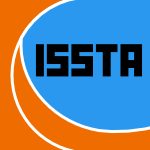 ISSTA-2015-Narayanaswamy #concurrent #performance
ISSTA-2015-Narayanaswamy #concurrent #performance- When truth is efficient: analysing concurrency (GN), pp. 141–152.
 DocEng-2014-FranzeMW #what
DocEng-2014-FranzeMW #what- What academics want when reading digitally (JF, KM, MW), pp. 199–202.
 SIGMOD-2014-AgarwalMKTJMMS #approximate #performance #query #reliability
SIGMOD-2014-AgarwalMKTJMMS #approximate #performance #query #reliability- Knowing when you’re wrong: building fast and reliable approximate query processing systems (SA, HM, AK, AT, MIJ, SM, BM, IS), pp. 481–492.
 SIGMOD-2014-CheungMS #database #lazy evaluation #named #query
SIGMOD-2014-CheungMS #database #lazy evaluation #named #query- Sloth: being lazy is a virtue (when issuing database queries) (AC, SM, ASL), pp. 931–942.
 VLDB-2014-He #approximate #challenge #data transformation #hardware
VLDB-2014-He #approximate #challenge #data transformation #hardware- When Data Management Systems Meet Approximate Hardware: Challenges and Opportunities (BH), pp. 877–880.
 ICSME-2014-AbreuCFMPS14a #detection #fault #locality #smell
ICSME-2014-AbreuCFMPS14a #detection #fault #locality #smell- FaultySheet Detective: When Smells Meet Fault Localization (RA, JC, JPF, PM, AP, JS), pp. 625–628.
 ICSME-2014-McIntoshANH #co-evolution #mining
ICSME-2014-McIntoshANH #co-evolution #mining- Mining Co-change Information to Understand When Build Changes Are Necessary (SM, BA, MN, AEH), pp. 241–250.
 FM-2014-FengZ #automaton #bisimulation #equivalence #probability
FM-2014-FengZ #automaton #bisimulation #equivalence #probability- When Equivalence and Bisimulation Join Forces in Probabilistic Automata (YF, LZ), pp. 247–262.
 CHI-2014-VinesDM
CHI-2014-VinesDM- Pay or delay: the role of technology when managing a low income (JV, PD, AM), pp. 501–510.
 CSCW-2014-KangKK #analysis #collaboration #information management #tool support
CSCW-2014-KangKK #analysis #collaboration #information management #tool support- Teammate inaccuracy blindness: when information sharing tools hinder collaborative analysis (RK, AK, SBK), pp. 797–806.
 DUXU-DP-2014-AncientG #design #interface #people
DUXU-DP-2014-AncientG #design #interface #people- Considering People Living with Dementia When Designing Interfaces (CA, AG), pp. 113–123.
 DUXU-TMT-2014-WetzlingerAD #effectiveness #experience #performance #usability #user interface #using
DUXU-TMT-2014-WetzlingerAD #effectiveness #experience #performance #usability #user interface #using- Comparing Effectiveness, Efficiency, Ease of Use, Usability and User Experience When Using Tablets and Laptops (WW, AA, MD), pp. 402–412.
 HIMI-AS-2014-GotzeBPB #quote
HIMI-AS-2014-GotzeBPB #quote- “A Careful Driver is One Who Looks in Both Directions When He Passes a Red Light” — Increased Demands in Urban Traffic (MG, FB, IPS, KB), pp. 229–240.
 ICEIS-v2-2014-BorattoC #clustering #collaboration #recommendation #using
ICEIS-v2-2014-BorattoC #clustering #collaboration #recommendation #using- Using Collaborative Filtering to Overcome the Curse of Dimensionality when Clustering Users in a Group Recommender System (LB, SC), pp. 564–572.
 CIKM-2014-LimsopathamMO #modelling #multi #ranking #towards
CIKM-2014-LimsopathamMO #modelling #multi #ranking #towards- Modelling Relevance towards Multiple Inclusion Criteria when Ranking Patients (NL, CM, IO), pp. 1639–1648.
 ICML-c2-2014-0001NKA #estimation #probability
ICML-c2-2014-0001NKA #estimation #probability- GEV-Canonical Regression for Accurate Binary Class Probability Estimation when One Class is Rare (AA, HN, SK, SA), pp. 1989–1997.
 ICML-c2-2014-NgoT #modelling #relational
ICML-c2-2014-NgoT #modelling #relational- Model-Based Relational RL When Object Existence is Partially Observable (NAV, MT), pp. 559–567.
 ICML-c2-2014-VinnikovS #component #independence
ICML-c2-2014-VinnikovS #component #independence- K-means recovers ICA filters when independent components are sparse (AV, SSS), pp. 712–720.
 ICPR-2014-MesterC #statistics
ICPR-2014-MesterC #statistics- When Patches Match — A Statistical View on Matching under Illumination Variation (RM, CC), pp. 4364–4369.
 ICPR-2014-YingWMYZ #problem #using
ICPR-2014-YingWMYZ #problem #using- The Perspective-3-Point Problem When Using a Planar Mirror (XY, GW, XM, SY, HZ), pp. 4033–4037.
 SIGIR-2014-SiY #information retrieval #privacy #security
SIGIR-2014-SiY #information retrieval #privacy #security- Privacy-preserving IR: when information retrieval meets privacy and security (LS, HY), p. 1295.
 HPDC-2014-MuCWZ #network #replication #state machine
HPDC-2014-MuCWZ #network #replication #state machine- When paxos meets erasure code: reduce network and storage cost in state machine replication (SM, KC, YW, WZ), pp. 61–72.
 DAC-2013-ZhaiBS #parallel #realtime #streaming
DAC-2013-ZhaiBS #parallel #realtime #streaming- Exploiting just-enough parallelism when mapping streaming applications in hard real-time systems (JTZ, MB, TS), p. 8.
 PODS-2013-GheerbrantLS #evaluation #question
PODS-2013-GheerbrantLS #evaluation #question- When is naive evaluation possible? (AG, LL, CS), pp. 75–86.
 VLDB-2013-SimoesGG #algorithm #approximate #information management #performance #using
VLDB-2013-SimoesGG #algorithm #approximate #information management #performance #using- When Speed Has a Price: Fast Information Extraction Using Approximate Algorithms (GS, HG, LG), pp. 1462–1473.
 CSMR-2013-PanichellaMMPOPL #how #traceability #using
CSMR-2013-PanichellaMMPOPL #how #traceability #using- When and How Using Structural Information to Improve IR-Based Traceability Recovery (AP, CM, EM, DP, RO, DP, ADL), pp. 199–208.
 MSR-2013-AllamanisS #stack overflow #topic #what #why
MSR-2013-AllamanisS #stack overflow #topic #what #why- Why, when, and what: analyzing stack overflow questions by topic, type, and code (MA, CAS), pp. 53–56.
 WCRE-2013-LiXPZ #developer #how #question #what
WCRE-2013-LiXPZ #developer #how #question #what- What help do developers seek, when and how? (HL, ZX, XP, WZ), pp. 142–151.
 PLDI-2013-KongVSFPS #code generation
PLDI-2013-KongVSFPS #code generation- When polyhedral transformations meet SIMD code generation (MK, RV, KS, FF, LNP, PS), pp. 127–138.
 CHI-2013-ErikssonAS
CHI-2013-ErikssonAS- The secret life of a persona: when the personal becomes private (EE, HA, AS), pp. 2677–2686.
 CHI-2013-GustafsonRB #comprehension #interface #visual notation
CHI-2013-GustafsonRB #comprehension #interface #visual notation- Understanding palm-based imaginary interfaces: the role of visual and tactile cues when browsing (SG, BR, PB), pp. 889–898.
 CHI-2013-LewisUM #named
CHI-2013-LewisUM #named- UMUX-LITE: when there’s no time for the SUS (JRL, BU, DEM), pp. 2099–2102.
 CHI-2013-RiceTOYWN #behaviour #game studies #interactive
CHI-2013-RiceTOYWN #behaviour #game studies #interactive- The dynamics of younger and older adult’s paired behavior when playing an interactive silhouette game (MDR, WPT, JO, LJY, MW, JN), pp. 1081–1090.
 CHI-2013-SenJHBC
CHI-2013-SenJHBC- When the price is right: enabling time-dependent pricing of broadband data (SS, CJW, SH, JB, MC), pp. 2477–2486.
 CSCW-2013-DoucetteGMNS #collaboration #how
CSCW-2013-DoucetteGMNS #collaboration #how- Sometimes when we touch: how arm embodiments change reaching and collaboration on digital tables (AD, CG, RLM, MAN, SS), pp. 193–202.
 DHM-SET-2013-BrooksB #game studies #using #video
DHM-SET-2013-BrooksB #game studies #using #video- Facilitators’ Intervention Variance and Outcome Influence When Using Video Games with Fibromyalgia Patients (ALB, EPB), pp. 163–172.
 DUXU-CXC-2013-Webb #gamification #named
DUXU-CXC-2013-Webb #gamification #named- Gamification: When It Works, When It Doesn’t (ENW), pp. 608–614.
 HCI-UC-2013-KawabeIN #predict
HCI-UC-2013-KawabeIN #predict- A Refuge Location Prediction System for When a Tsunami Has Occurred (AK, TI, YN), pp. 295–300.
 HIMI-D-2013-JinnaiONKAS #evaluation #multi
HIMI-D-2013-JinnaiONKAS #evaluation #multi- Evaluation of Somatosensory Evoked Responses When Multiple Tactile Information Was Given to the Palm: A MEG Study (AJ, AO, SN, KK, TA, SS), pp. 594–603.
 HIMI-D-2013-Remy #in the cloud #simulation #standard
HIMI-D-2013-Remy #in the cloud #simulation #standard- Quantifying the Impact of Standards When Hosting Robotic Simulations in the Cloud (SLR), pp. 365–374.
 HIMI-D-2013-SilvaZGBSV #question
HIMI-D-2013-SilvaZGBSV #question- Are the Intrusive Effects of SPAM Probes Present When Operators Differ by Skill Level and Training? (HIS, JZ, TG, VB, TZS, KPLV), pp. 269–275.
 HIMI-HSM-2013-CastronovoMM #interface #what
HIMI-HSM-2013-CastronovoMM #interface #what- What, Where, and When? Intelligent Presentation Management for Automotive Human Machine Interfaces and Its Application (SC, AM, CAM), pp. 460–469.
 HIMI-HSM-2013-KosakaN #behaviour #education
HIMI-HSM-2013-KosakaN #behaviour #education- Pilot Experiments in Education for Safe Bicycle Riding to Evaluate Actual Cycling Behaviors When Entering an Intersection (HK, MN), pp. 515–523.
 KDD-2013-GaneshapillaiG #data-driven
KDD-2013-GaneshapillaiG #data-driven- A data-driven method for in-game decision making in MLB: when to pull a starting pitcher (GG, JVG), pp. 973–979.
 KDD-2013-RobardetSPF #dependence
KDD-2013-RobardetSPF #dependence- When TEDDY meets GrizzLY: temporal dependency discovery for triggering road deicing operations (CR, VMS, MP, AF), pp. 1490–1493.
 KDD-2013-YuanCMSM #topic #twitter #what
KDD-2013-YuanCMSM #topic #twitter #what- Who, where, when and what: discover spatio-temporal topics for twitter users (QY, GC, ZM, AS, NMT), pp. 605–613.
 KDD-2013-ZhengLH #big data #named #quality
KDD-2013-ZhengLH #big data #named #quality- U-Air: when urban air quality inference meets big data (YZ, FL, HPH), pp. 1436–1444.
 KDIR-KMIS-2013-StroetmannLOE #difference #information management #performance #quality
KDIR-KMIS-2013-StroetmannLOE #difference #information management #performance #quality- When Measuring Performance Makes the Difference — Quality and Success of a Clinical Knowledge Management Project (BS, AL, AO, OE), pp. 419–425.
 MLDM-2013-PrieditisL #bound #classification #performance #problem #using
MLDM-2013-PrieditisL #bound #classification #performance #problem #using- When Classification becomes a Problem: Using Branch-and-Bound to Improve Classification Efficiency (AP, ML), pp. 466–480.
 RecSys-2013-CremonesiGQ #recommendation
RecSys-2013-CremonesiGQ #recommendation- Evaluating top-n recommendations “when the best are gone” (PC, FG, MQ), pp. 339–342.
 RecSys-2013-WilsonS #collaboration #recommendation
RecSys-2013-WilsonS #collaboration #recommendation- When power users attack: assessing impacts in collaborative recommender systems (DCW, CES), pp. 427–430.
 SIGIR-2013-McCreadieMO #what
SIGIR-2013-McCreadieMO #what- News vertical search: when and what to display to users (RM, CM, IO), pp. 253–262.
 GPCE-2013-Flatt #question
GPCE-2013-Flatt #question- Submodules in racket: you want it when, again? (MF), pp. 13–22.
 SAC-2013-BuarqueCA #modelling #requirements
SAC-2013-BuarqueCA #modelling #requirements- The role of NFRs when transforming i* requirements models into OO-method models (AB, JC, FMRA), pp. 1305–1306.
 SAC-2013-CeccarelliGLNP #query #recommendation #semantics
SAC-2013-CeccarelliGLNP #query #recommendation #semantics- When entities meet query recommender systems: semantic search shortcuts (DC, SG, CL, FMN, RP), pp. 933–938.
 ICSE-2013-ShangJHAHM #big data #data analysis #developer
ICSE-2013-ShangJHAHM #big data #data analysis #developer- Assisting developers of big data analytics applications when deploying on hadoop clouds (WS, ZMJ, HH, BA, AEH, PM), pp. 402–411.
 CSL-2013-Hunter #logic #metric #question
CSL-2013-Hunter #logic #metric #question- When is Metric Temporal Logic Expressively Complete? (PH), pp. 380–394.
 DAC-2012-ChangB #simulation
DAC-2012-ChangB #simulation- Improving gate-level simulation accuracy when unknowns exist (KHC, CB), pp. 936–940.
 SIGMOD-2012-SuS #pipes and filters
SIGMOD-2012-SuS #pipes and filters- Oracle in-database hadoop: when mapreduce meets RDBMS (XS, GS), pp. 779–790.
 FASE-2012-BradfieldS #calculus #qvt #recursion #μ-calculus
FASE-2012-BradfieldS #calculus #qvt #recursion #μ-calculus- Recursive Checkonly QVT-R Transformations with General when and where Clauses via the Modal μ Calculus (JCB, PS), pp. 194–208.
 FoSSaCS-2012-AhmanCU #monad #question
FoSSaCS-2012-AhmanCU #monad #question- When Is a Container a Comonad? (DA, JC, TU), pp. 74–88.
 CSMR-2012-BernardiCLPD #communication #debugging #developer #eclipse
CSMR-2012-BernardiCLPD #communication #debugging #developer #eclipse- Do Developers Introduce Bugs When They Do Not Communicate? The Case of Eclipse and Mozilla (MLB, GC, GADL, MDP, DD), pp. 139–148.
 ICSM-2012-ThungLJLRD #debugging #question
ICSM-2012-ThungLJLRD #debugging #question- When would this bug get reported? (FT, DL, LJ, L, FR, PTD), pp. 420–429.
 SCAM-2012-BavotaCLPOS #debugging #empirical #refactoring
SCAM-2012-BavotaCLPOS #debugging #empirical #refactoring- When Does a Refactoring Induce Bugs? An Empirical Study (GB, BDC, ADL, MDP, RO, OS), pp. 104–113.
 SAS-2012-HalbwachsH #sequence
SAS-2012-HalbwachsH #sequence- When the Decreasing Sequence Fails (NH, JH), pp. 198–213.
 STOC-2012-ChakrabartiFW #multi #network #problem
STOC-2012-ChakrabartiFW #multi #network #problem- When the cut condition is enough: a complete characterization for multiflow problems in series-parallel networks (AC, LF, CW), pp. 19–26.
 FM-2012-DormoyKL #component #configuration management #refinement
FM-2012-DormoyKL #component #configuration management #refinement- When Structural Refinement of Components Keeps Temporal Properties over Reconfigurations (JD, OK, AL), pp. 171–186.
 CHI-2012-Densmore #mobile
CHI-2012-Densmore #mobile- Claim mobile: when to fail a technology (MD), pp. 1833–1842.
 CHI-2012-TopkaraPLDWB #email #enterprise #quote #video
CHI-2012-TopkaraPLDWB #email #enterprise #quote #video- “You’ve got video”: increasing clickthrough when sharing enterprise video with email (MT, SP, JCL, AD, SW, JB), pp. 565–568.
 EDOC-2012-GraupnerBNM #enterprise #social #social media
EDOC-2012-GraupnerBNM #enterprise #social #social media- When Social Media Meet the Enterprise (SG, CB, HRMN, DM), pp. 201–210.
 ECIR-2012-NeumayerBN12a #effectiveness #semantics
ECIR-2012-NeumayerBN12a #effectiveness #semantics- When Simple is (more than) Good Enough: Effective Semantic Search with (almost) no Semantics (RN, KB, KN), pp. 540–543.
 KDD-2012-Davidson #clustering #comprehension #constraints
KDD-2012-Davidson #clustering #comprehension #constraints- Two approaches to understanding when constraints help clustering (ID), pp. 1312–1320.
 RecSys-2012-EkstrandR #algorithm #predict #recommendation
RecSys-2012-EkstrandR #algorithm #predict #recommendation- When recommenders fail: predicting recommender failure for algorithm selection and combination (MDE, JR), pp. 233–236.
 SIGIR-2012-LiuADMS #comprehension #web
SIGIR-2012-LiuADMS #comprehension #web- When web search fails, searchers become askers: understanding the transition (QL, EA, GD, YM, IS), pp. 801–810.
 SIGIR-2012-Sakai #evaluation #information retrieval #mobile #towards #what
SIGIR-2012-Sakai #evaluation #information retrieval #mobile #towards #what- Towards zero-click mobile IR evaluation: knowing what and knowing when (TS), pp. 1157–1158.
 ECOOP-2012-Odersky #compilation
ECOOP-2012-Odersky #compilation- When Compilers Are Mirrors (MO), p. 1.
 RE-2012-MaglyasNS #question #what
RE-2012-MaglyasNS #question #what- What do practitioners mean when they talk about product management? (AM, UN, KS), pp. 261–266.
 REFSQ-2012-AnhCCHFA #collaboration #component #open source #requirements
REFSQ-2012-AnhCCHFA #collaboration #component #open source #requirements- Collaborative Resolution of Requirements Mismatches When Adopting Open Source Components (NDA, DSC, RC, MH, XF, CPA), pp. 77–93.
 ICSE-2012-CeccatoMMNT #debugging #effectiveness #empirical #random testing #testing
ICSE-2012-CeccatoMMNT #debugging #effectiveness #empirical #random testing #testing- An empirical study about the effectiveness of debugging when random test cases are used (MC, AM, LM, CDN, PT), pp. 452–462.
 ICSE-2012-ForbesKR #challenge #navigation #open source #research
ICSE-2012-ForbesKR #challenge #navigation #open source #research- When open source turns cold on innovation — The challenges of navigating licensing complexities in new research domains (CF, IK, JR), pp. 1447–1448.
 OSDI-2012-LiPCGPR #consistency #performance
OSDI-2012-LiPCGPR #consistency #performance- Making Geo-Replicated Systems Fast as Possible, Consistent when Necessary (CL, DP, AC, JG, NMP, RR), pp. 265–278.
 CAV-2012-HanJ #satisfiability
CAV-2012-HanJ #satisfiability- When Boolean Satisfiability Meets Gaussian Elimination in a Simplex Way (CSH, JHRJ), pp. 410–426.
 ICST-2012-ChenLYS #question #testing #user interface #what
ICST-2012-ChenLYS #question #testing #user interface #what- When a GUI Regression Test Failed, What Should be Blamed? (JC, ML, KY, BS), pp. 467–470.
 ICST-2012-ChoudharyDBJOI #challenge #internet #modelling #security #testing
ICST-2012-ChoudharyDBJOI #challenge #internet #modelling #security #testing- Solving Some Modeling Challenges when Testing Rich Internet Applications for Security (SC, MED, GvB, GVJ, IVO, PI), pp. 850–857.
 LICS-2012-ChatterjeeD #game studies #how #probability
LICS-2012-ChatterjeeD #game studies #how #probability- Partial-Observation Stochastic Games: How to Win When Belief Fails (KC, LD), pp. 175–184.
 ECSA-2011-Axelsson #architecture #embedded #how #nondeterminism #on the
ECSA-2011-Axelsson #architecture #embedded #how #nondeterminism #on the- On How to Deal with Uncertainty When Architecting Embedded Software and Systems (JA), pp. 199–202.
 DATE-2011-JhaLMR #simulation #statistics #trade-off #verification
DATE-2011-JhaLMR #simulation #statistics #trade-off #verification- When to stop verification?: Statistical trade-off between expected loss and simulation cost (SKJ, CJL, SM, SR), pp. 1309–1314.
 DocEng-2011-CazenaveQR #css #html
DocEng-2011-CazenaveQR #css #html- Timesheets.js: when SMIL meets HTML5 and CSS3 (FC, VQ, CR), pp. 43–52.
 HT-2011-Gayo-Avello
HT-2011-Gayo-Avello- All liaisons are dangerous when all your friends are known to us (DGA), pp. 171–180.
 ICDAR-2011-LoprestiN #problem #question
ICDAR-2011-LoprestiN #problem #question- When is a Problem Solved? (DPL, GN), pp. 32–36.
 CSEET-2011-RadermacherW #empirical #interactive #programming #student #using
CSEET-2011-RadermacherW #empirical #interactive #programming #student #using- Investigating student-instructor interactions when using pair programming: An empirical study (AR, GSW), pp. 41–50.
 ITiCSE-2011-AmbrosioM #education #matter #what
ITiCSE-2011-AmbrosioM #education #matter #what- What matters most when teaching CS1 (APA, SWM), p. 385.
 FoSSaCS-2011-AtkeyJG #induction #question #refinement
FoSSaCS-2011-AtkeyJG #induction #question #refinement- When Is a Type Refinement an Inductive Type? (RA, PJ, NG), pp. 72–87.
 ICSM-2011-Kemmerer #how #what
ICSM-2011-Kemmerer #how #what- How to steal a botnet and what can happen when you do (RAK), p. 1.
 ICALP-v1-2011-HermelinMLW
ICALP-v1-2011-HermelinMLW- Domination When the Stars Are Out (DH, MM, EJvL, GJW), pp. 462–473.
 CHI-2011-BaumerS #design
CHI-2011-BaumerS #design- When the implication is not to design (technology) (EPSB, MSS), pp. 2271–2274.
 CHI-2011-KelleyBCS #question
CHI-2011-KelleyBCS #question- When are users comfortable sharing locations with advertisers? (PGK, MB, LFC, NMS), pp. 2449–2452.
 CHI-2011-ONeillMCG
CHI-2011-ONeillMCG- When a little knowledge isn’t a dangerous thing (JO, DBM, TC, AG), pp. 1667–1676.
 CHI-2011-SauroL #design #question #usability
CHI-2011-SauroL #design #question #usability- When designing usability questionnaires, does it hurt to be positive? (JS, JRL), pp. 2215–2224.
 CHI-2011-YeeDYN
CHI-2011-YeeDYN- Do men heal more when in drag?: conflicting identity cues between user and avatar (NY, ND, MY, LN), pp. 773–776.
 DHM-2011-TangoMAP #automation #behaviour #classification
DHM-2011-TangoMAP #automation #behaviour #classification- Automation Effects on Driver’s Behaviour When Integrating a PADAS and a Distraction Classifier (FT, LM, RA, OP), pp. 503–512.
 DUXU-v1-2011-PrabhalaLG #people #question #what #word
DUXU-v1-2011-PrabhalaLG #people #question #what #word- Ethnography, Ethnography or Ethnography? What Happens When the Same Word Means Different Things to Different People? (SP, DL, SG), pp. 102–110.
 HCI-UA-2011-LargeB #comparison #interface #retrieval #using #visualisation
HCI-UA-2011-LargeB #comparison #interface #retrieval #using #visualisation- A Comparison of Children’s and Adults’ Retrieval Performances and Affective Reactions When Using a Conventional Interface and an Information Visualization Interface (AL, JB), pp. 590–598.
 CIKM-2011-AgrawalIV
CIKM-2011-AgrawalIV- Timing when to buy (RA, SI, RV), pp. 709–718.
 CIKM-2011-ElsayedLM #approximate #performance #retrieval
CIKM-2011-ElsayedLM #approximate #performance #retrieval- When close enough is good enough: approximate positional indexes for efficient ranked retrieval (TE, JJL, DM), pp. 1993–1996.
 SIGIR-2011-LvZ #documentation #exclamation
SIGIR-2011-LvZ #documentation #exclamation- When documents are very long, BM25 fails! (YL, CZ), pp. 1103–1104.
 OOPSLA-2011-SonMS #named #security #what
OOPSLA-2011-SonMS #named #security #what- RoleCast: finding missing security checks when you do not know what checks are (SS, KSM, VS), pp. 1069–1084.
 GPCE-2011-RibeiroQBTBS #dependence #maintenance #on the #product line
GPCE-2011-RibeiroQBTBS #dependence #maintenance #on the #product line- On the impact of feature dependencies when maintaining preprocessor-based software product lines (MR, FQ, PB, TT, CB, SS), pp. 23–32.
 ESEC-FSE-2011-AliSSONM #monitoring #social
ESEC-FSE-2011-AliSSONM #monitoring #social- Social sensing: when users become monitors (RA, CS, MS, IO, BN, WM), pp. 476–479.
 ICST-2011-YuSSR #embedded #testing #using
ICST-2011-YuSSR #embedded #testing #using- Using Property-Based Oracles when Testing Embedded System Applications (TY, AS, WSa, GR), pp. 100–109.
 ASE-2010-KessentiniVS #identification #risk management
ASE-2010-KessentiniVS #identification #risk management- Deviance from perfection is a better criterion than closeness to evil when identifying risky code (MK, SV, HAS), pp. 113–122.
 ASE-2010-KocaguneliGMYK #estimation
ASE-2010-KocaguneliGMYK #estimation- When to use data from other projects for effort estimation (EK, GG, TM, YY, JWK), pp. 321–324.
 PODS-2010-HartmannL #dependence #logic #sql
PODS-2010-HartmannL #dependence #logic #sql- When data dependencies over SQL tables meet the logics of paradox and S-3 (SH, SL), pp. 317–326.
 ITiCSE-2010-DoddsLB #biology #collaboration
ITiCSE-2010-DoddsLB #biology #collaboration- When CS 1 is biology 1: crossdisciplinary collaboration as CS context (ZD, RLH, EB), pp. 219–223.
 ITiCSE-2010-Williams-KingAC #named
ITiCSE-2010-Williams-KingAC #named- Enbug: when debuggers go bad (DWK, JA, DMNdC), pp. 28–32.
 FoSSaCS-2010-DemriS #decidability #ltl #model checking
FoSSaCS-2010-DemriS #decidability #ltl #model checking- When Model-Checking Freeze LTL over Counter Machines Becomes Decidable (SD, AS), pp. 176–190.
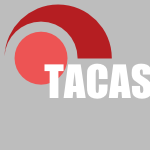 TACAS-2010-AbdullaCHMV #anti #simulation
TACAS-2010-AbdullaCHMV #anti #simulation- When Simulation Meets Antichains (PAA, YFC, LH, RM, TV), pp. 158–174.
 MSR-2010-BachmannB #correlation #dataset #debugging #process #quality #re-engineering
MSR-2010-BachmannB #correlation #dataset #debugging #process #quality #re-engineering- When process data quality affects the number of bugs: Correlations in software engineering datasets (AB, AB), pp. 62–71.
 ICALP-v1-2010-Welzl #constraints #satisfiability
ICALP-v1-2010-Welzl #constraints #satisfiability- When Conflicting Constraints Can Be Resolved — The Lovász Local Lemma and Satisfiability (EW), p. 18.
 CHI-2010-HornofZH #multimodal
CHI-2010-HornofZH #multimodal- Knowing where and when to look in a time-critical multimodal dual task (AJH, YZ, TH), pp. 2103–2112.
 KDD-2010-AttenbergP #classification #learning #modelling #why
KDD-2010-AttenbergP #classification #learning #modelling #why- Why label when you can search?: alternatives to active learning for applying human resources to build classification models under extreme class imbalance (JA, FJP), pp. 423–432.
 KDD-2010-YuHCL #classification #in memory #linear #memory management #scalability
KDD-2010-YuHCL #classification #in memory #linear #memory management #scalability- Large linear classification when data cannot fit in memory (HFY, CJH, KWC, CJL), pp. 833–842.
 SPLC-2010-BelategiSE #embedded #product line #variability
SPLC-2010-BelategiSE #embedded #product line #variability- MARTE Mechanisms to Model Variability When Analyzing Embedded Software Product Lines (LB, GS, LE), pp. 466–470.
 ICST-2010-JobstlWAW #consistency #execution #smt #symbolic computation #testing
ICST-2010-JobstlWAW #consistency #execution #smt #symbolic computation #testing- When BDDs Fail: Conformance Testing with Symbolic Execution and SMT Solving (EJ, MW, BKA, FW), pp. 479–488.
 HT-2009-RomanelloBBC #information management #parsing
HT-2009-RomanelloBBC #information management #parsing- When printed hypertexts go digital: information extraction from the parsing of indices (MR, MB, AB, GRC), pp. 357–358.
 VLDB-2009-KraskaHAK #consistency #in the cloud #matter
VLDB-2009-KraskaHAK #consistency #in the cloud #matter- Consistency Rationing in the Cloud: Pay only when it matters (TK, MH, GA, DK), pp. 253–264.
 ITiCSE-2009-Kumar #education
ITiCSE-2009-Kumar #education- Need to consider variations within demographic groups when evaluating educational interventions (ANK), pp. 176–180.
 CSMR-2009-RibeiroB #product line
CSMR-2009-RibeiroB #product line- Improving Guidance when Restructuring Variabilities in Software Product Lines (MdMR, PB), pp. 79–88.
 ICSM-2009-JadallahGMR
ICSM-2009-JadallahGMR- Balancing value and modifiability when planning for the next release (AJ, MG, MM, GR), pp. 495–498.
 ICALP-v2-2009-BaierBBB #automaton #question
ICALP-v2-2009-BaierBBB #automaton #question- When Are Timed Automata Determinizable? (CB, NB, PB, TB), pp. 43–54.
 CHI-2009-BrumbySH #adaptation #constraints #how
CHI-2009-BrumbySH #adaptation #constraints #how- Focus on driving: how cognitive constraints shape the adaptation of strategy when dialing while driving (DPB, DDS, AH), pp. 1629–1638.
 CHI-2009-BuscherCM #eye tracking #predict #using #web #what
CHI-2009-BuscherCM #eye tracking #predict #using #web #what- What do you see when you’re surfing?: using eye tracking to predict salient regions of web pages (GB, EC, MRM), pp. 21–30.
 CHI-2009-GaverBKBJ #design #how #what
CHI-2009-GaverBKBJ #design #how #what- Anatomy of a failure: how we knew when our design went wrong, and what we learned from it (WWG, JB, TK, AB, NJ), pp. 2213–2222.
 CHI-2009-HogganCBK #feedback #question
CHI-2009-HogganCBK #feedback #question- Audio or tactile feedback: which modality when? (EEH, AC, SAB, TK), pp. 2253–2256.
 CHI-2009-KarlsonBS #comprehension #mobile
CHI-2009-KarlsonBS #comprehension #mobile- Can I borrow your phone?: understanding concerns when sharing mobile phones (AKK, AJBB, SES), pp. 1647–1650.
 CHI-2009-KlasnjaCJGLPW #privacy #quote
CHI-2009-KlasnjaCJGLPW #privacy #quote- “When I am on Wi-Fi, I am fearless”: privacy concerns & practices in everyday Wi-Fi use (PVK, SC, JJ, BG, LL, PP, DW), pp. 1993–2002.
 CHI-2009-MarshallFHRHRYD #interactive #physics #using
CHI-2009-MarshallFHRHRYD #interactive #physics #using- Fighting for control: children’s embodied interactions when using physical and digital representations (PM, RF, AH, JR, EH, YR, NY, NSD), pp. 2149–2152.
 OCSC-2009-EgertJB #social #social media
OCSC-2009-EgertJB #social #social media- When Social Worlds Collide: Charting the Intersection of Social Media and Courseware/Course Management Systems (CAE, SJ, SBB), pp. 452–461.
 ICML-2009-PoczosASGS #exclamation #learning
ICML-2009-PoczosASGS #exclamation #learning- Learning when to stop thinking and do something! (BP, YAY, CS, RG, NRS), pp. 825–832.
 ICML-2009-RaykarYZJFVBM #learning #multi #trust
ICML-2009-RaykarYZJFVBM #learning #multi #trust- Supervised learning from multiple experts: whom to trust when everyone lies a bit (VCR, SY, LHZ, AKJ, CF, GHV, LB, LM), pp. 889–896.
 KDD-2009-CrookFKL #web
KDD-2009-CrookFKL #web- Seven pitfalls to avoid when running controlled experiments on the web (TC, BF, RK, RL), pp. 1105–1114.
 KMIS-2009-MorenoCCAMCG #case study #experience #research
KMIS-2009-MorenoCCAMCG #case study #experience #research- When Knowledge Meets Innovation Technology — The ENEA e-LEARN Experiences through Technology and Research (AM, FC, CC, AA, CM, AC, SG), pp. 161–166.
 SIGIR-2009-HauffA #effectiveness #performance #predict #query #question
SIGIR-2009-HauffA #effectiveness #performance #predict #query #question- When is query performance prediction effective? (CH, LA), pp. 829–830.
 SIGIR-2009-OulasvirtaHS
SIGIR-2009-OulasvirtaHS- When more is less: the paradox of choice in search engine use (AO, JPH, BS), pp. 516–523.
 REFSQ-2009-Dzamashvili-FogelstromBAH #requirements
REFSQ-2009-Dzamashvili-FogelstromBAH #requirements- When Product Managers Gamble with Requirements: Attitudes to Value and Risk (NDF, SB, AA, AH), pp. 1–15.
 SAC-2009-Fernandez-MarquezA
SAC-2009-Fernandez-MarquezA- Keeping diversity when exploring dynamic environments (JLFM, JLA), pp. 1192–1196.
 SAC-2009-NetoFP #named #people #using
SAC-2009-NetoFP #named #people #using- MATRACA: a tool to provide support for people with impaired vision when using the computer for simple tasks (FGdON, JMF, RRGP), pp. 158–159.
 VLDB-2008-HoseKMS #question
VLDB-2008-HoseKMS #question- When is it time to rethink the aggregate configuration of your OLAP server? (KH, DK, MM, KUS), pp. 1492–1495.
 FASE-2008-BowlesM
FASE-2008-BowlesM- When Things Go Wrong: Interrupting Conversations (JKFB, SM), pp. 131–145.
 DLT-2008-CsimaK #decidability #question #reachability
DLT-2008-CsimaK #decidability #question #reachability- When Is Reachability Intrinsically Decidable? (BFC, BK), pp. 216–227.
 ICALP-B-2008-GomezGP #commutative #question
ICALP-B-2008-GomezGP #commutative #question- When Does Partial Commutative Closure Preserve Regularity? (ACG, GG, JÉP), pp. 209–220.
 ICALP-C-2008-HochS #on the
ICALP-C-2008-HochS #on the- On the Strength of the Concatenated Hash Combiner When All the Hash Functions Are Weak (JJH, AS), pp. 616–630.
 CHI-2008-ChauMF #what
CHI-2008-ChauMF #what- What to do when search fails: finding information by association (DHC, BAM, AF), pp. 999–1008.
 CHI-2008-RohsO #lens
CHI-2008-RohsO #lens- Target acquisition with camera phones when used as magic lenses (MR, AO), pp. 1409–1418.
 CAiSE-2008-Godet-BarDR #interactive
CAiSE-2008-Godet-BarDR #interactive- When Interaction Choices Trigger Business Evolutions (GGB, SDC, DR), pp. 144–147.
 ICEIS-DISI-2008-PennesiHRWS #what #why
ICEIS-DISI-2008-PennesiHRWS #what #why- WWW++ — Adding Why to What, When and Where (PP, MH, CR, CYW, SS), pp. 304–309.
 CIKM-2008-BroderCFGJMMP #learning
CIKM-2008-BroderCFGJMMP #learning- To swing or not to swing: learning when (not) to advertise (AZB, MC, MF, EG, VJ, DM, VM, VP), pp. 1003–1012.
 ICML-2008-FinleyJ
ICML-2008-FinleyJ- Training structural SVMs when exact inference is intractable (TF, TJ), pp. 304–311.
 ICPR-2008-SeiffertKHN #classification #named #performance
ICPR-2008-SeiffertKHN #classification #named #performance- RUSBoost: Improving classification performance when training data is skewed (CS, TMK, JVH, AN), pp. 1–4.
 SIGIR-2008-RahurkarC #predict
SIGIR-2008-RahurkarC #predict- Predicting when browsing context is relevant to search (MR, SC), pp. 841–842.
 REFSQ-2008-WelshS #adaptation #identification #problem
REFSQ-2008-WelshS #adaptation #identification #problem- When to Adapt? Identification of Problem Domains for Adaptive Systems (KW, PS), pp. 198–203.
 SAC-2008-FariaM #recognition #scalability #speech
SAC-2008-FariaM #recognition #scalability #speech- When a mismatch can be good: large vocabulary speech recognition trained with idealized tandem features (AF, NM), pp. 1574–1577.
 SAC-2008-GrovPMI #component #concurrent #coordination
SAC-2008-GrovPMI #component #concurrent #coordination- Preserving coordination properties when transforming concurrent system components (GG, RFP, GM, AI), pp. 126–127.
 CASE-2007-XiaoWL #flexibility #simulation
CASE-2007-XiaoWL #flexibility #simulation- Dynamic Coupling Simulation of a Power Transmission Line Inspection Robot with its Flexible Moving Path when Overcoming Obstacles (XX, GW, SL), pp. 326–331.
 DAC-2007-BacchiniHFRLTPZ #question #verification
DAC-2007-BacchiniHFRLTPZ #question #verification- Verification Coverage: When is Enough, Enough? (FB, AJH, TF, RR, DL, MT, AP, AZ), pp. 744–745.
 VLDB-2007-IvesDR #adaptation #how #query #question #what #why
VLDB-2007-IvesDR #adaptation #how #query #question #what #why- Adaptive query processing: Why, How, When, and What Next? (ZGI, AD, VR), pp. 1426–1427.
 CHI-2007-KalnikaiteW #memory management #people #why
CHI-2007-KalnikaiteW #memory management #people #why- Software or wetware?: discovering when and why people use digital prosthetic memory (VK, SW), pp. 71–80.
 HCI-IPT-2007-AuerD #difference
HCI-IPT-2007-AuerD #difference- When Does a Difference Make a Difference? A Snapshot on Global Icon Comprehensibility (SA, ED), pp. 3–12.
 ICEIS-DISI-2007-ChristianssonS #open data #problem #standard
ICEIS-DISI-2007-ChristianssonS #open data #problem #standard- Problems with non-open data standards in swedish municipals — when integrating and adopting systems (BC, FS), pp. 264–267.
 ECIR-2007-MelucciP07a #named #order #rank
ECIR-2007-MelucciP07a #named #order #rank- PageRank: When Order Changes (MM, LP), pp. 581–588.
 ICML-2007-YamazakiKWSM #fault
ICML-2007-YamazakiKWSM #fault- Asymptotic Bayesian generalization error when training and test distributions are different (KY, MK, SW, MS, KRM), pp. 1079–1086.
 MLDM-2007-MendezCGRD #performance
MLDM-2007-MendezCGRD #performance- Analyzing the Performance of Spam Filtering Methods When Dimensionality of Input Vector Changes (JRM, BC, DGP, FFR, FD), pp. 364–378.
 ICSE-2007-PistoiaFFY #enterprise #modelling #policy #security #validation
ICSE-2007-PistoiaFFY #enterprise #modelling #policy #security #validation- When Role Models Have Flaws: Static Validation of Enterprise Security Policies (MP, SJF, RJF, EY), pp. 478–488.
 SIGMOD-2006-DeshpandeHR #adaptation #how #query #what #why
SIGMOD-2006-DeshpandeHR #adaptation #how #query #what #why- Adaptive query processing: why, how, when, what next (AD, JMH, VR), pp. 806–807.
 ITiCSE-2006-Boetje #education #re-engineering
ITiCSE-2006-Boetje #education #re-engineering- Foundational actions: teaching software engineering when time is tight (JB), pp. 285–288.
 PEPM-2006-SwadiTKP #approach #monad #staging
PEPM-2006-SwadiTKP #approach #monad #staging- A monadic approach for avoiding code duplication when staging memoized functions (KNS, WT, OK, EP), pp. 160–169.
 STOC-2006-Feige #on the
STOC-2006-Feige #on the- On maximizing welfare when utility functions are subadditive (UF), pp. 41–50.
 FM-2006-GenonMM #algorithm #distributed #ltl #monitoring #performance #sequence
FM-2006-GenonMM #algorithm #distributed #ltl #monitoring #performance #sequence- Monitoring Distributed Controllers: When an Efficient LTL Algorithm on Sequences Is Needed to Model-Check Traces (AG, TM, CM), pp. 557–572.
 CSCW-2006-McNeeKK #recommendation #research
CSCW-2006-McNeeKK #recommendation #research- Don’t look stupid: avoiding pitfalls when recommending research papers (SMM, NK, JAK), pp. 171–180.
 SIGAda-2006-Mosley #embedded #legacy
SIGAda-2006-Mosley #embedded #legacy- When to migrate legacy embedded applications (DM), pp. 77–80.
 SIGAda-2006-ShindiC #benchmark #metric #performance
SIGAda-2006-ShindiC #benchmark #metric #performance- Evaluate the performance changes of processor simulator benchmarks When context switches are incorporated (RSS, SC), pp. 9–14.
 ICPR-v2-2006-FrintropJC
ICPR-v2-2006-FrintropJC- Pay Attention When Selecting Features (SF, PJ, HIC), pp. 163–166.
 KR-2006-Rector #information management #representation
KR-2006-Rector #information management #representation- Users Are Always Right ... Even When They Are Wrong: Making Knowledge Representation Useful and Usable (ALR), p. 4.
 GPCE-2006-ApelB #aspect-oriented #case study
GPCE-2006-ApelB #aspect-oriented #case study- When to use features and aspects?: a case study (SA, DSB), pp. 59–68.
 RE-2006-Cleland-Huang #how #question #requirements #traceability
RE-2006-Cleland-Huang #how #question #requirements #traceability- Requirements Traceability — When and How does it Deliver more than it Costs? (JCH), p. 323.
 HPDC-2006-WeinbergS #game studies
HPDC-2006-WeinbergS #game studies- When Jobs Play Nice: The Case For Symbiotic Space-Sharing (JW, AS), pp. 361–362.
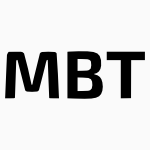 MBT-2006-AichernigG #modelling #testing
MBT-2006-AichernigG #modelling #testing- When Model-based Testing Fails (BKA, CG), pp. 115–128.
 WICSA-2005-LandBLC #architecture #case study #experience #industrial #integration
WICSA-2005-LandBLC #architecture #case study #experience #industrial #integration- Architectural Concerns When Selecting an In-House Integration Strategy — Experiences from Industry (RL, LB, SL, IC), pp. 274–275.
 ASE-2005-Zheng #source code #testing
ASE-2005-Zheng #source code #testing- In regression testing selection when source code is not available (JZ0), pp. 452–455.
 HT-2005-Walker #hypermedia
HT-2005-Walker #hypermedia- Feral hypertext: when hypertext literature escapes control (JW), pp. 46–53.
 PODS-2005-Dobra #approximate #question
PODS-2005-Dobra #approximate #question- Histograms revisited: when are histograms the best approximation method for aggregates over joins? (AD), pp. 228–237.
 SIGMOD-2005-ChaudhuriKR #query #question #sql #trust
SIGMOD-2005-ChaudhuriKR #query #question #sql #trust- When Can We Trust Progress Estimators for SQL Queries? (SC, RK, RR), pp. 575–586.
 VLDB-2005-YuP #adaptation #semantics
VLDB-2005-YuP #adaptation #semantics- Semantic Adaptation of Schema Mappings when Schemas Evolve (CY, LP), pp. 1006–1017.
 ITiCSE-2005-Barker #experience #question #student
ITiCSE-2005-Barker #experience #question #student- When do group projects widen the student experience gap? (LJB), pp. 276–280.
 MSR-2005-SliwerskiZZ #question
MSR-2005-SliwerskiZZ #question- When do changes induce fixes? (JŚ, TZ, AZ), pp. 41–45.
 WCRE-2005-KimPW #automation #detection
WCRE-2005-KimPW #automation #detection- When Functions Change Their Names: Automatic Detection of Origin Relationships (SK, KP, EJWJ), pp. 143–152.
 CHI-2005-CarterM
CHI-2005-CarterM- When participants do the capturing: the role of media in diary studies (SC, JM), pp. 899–908.
 CHI-2005-ConsolvoSMLTP #people #social #what #why
CHI-2005-ConsolvoSMLTP #people #social #what #why- Location disclosure to social relations: why, when, & what people want to share (SC, IES, TM, AL, JT, PP), pp. 81–90.
 CHI-2005-Kaki #category theory #documentation #named #ranking
CHI-2005-Kaki #category theory #documentation #named #ranking- Findex: search result categories help users when document ranking fails (MK), pp. 131–140.
 CHI-2005-PatilL #configuration management #privacy #what
CHI-2005-PatilL #configuration management #privacy #what- Who gets to know what when: configuring privacy permissions in an awareness application (SP, JL), pp. 101–110.
 SEKE-2005-JuricWM #automation #case study #component #experience #generative #off the shelf
SEKE-2005-JuricWM #automation #case study #component #experience #generative #off the shelf- Experiences of Generating COTS Components when Automating Medicinal Product Evaluations (RJ, SW, PM), pp. 653–656.
 SIGIR-2005-AllanCL #information retrieval #question
SIGIR-2005-AllanCL #information retrieval #question- When will information retrieval be “good enough”? (JA, BC, JL), pp. 433–440.
 SAC-2005-ToKS #exclamation #mobile #network
SAC-2005-ToKS #exclamation #mobile #network- Mobile agents for network management: when and when not! (HHT, SK, BS), pp. 47–53.
 ICSE-2005-JacksonZ #question
ICSE-2005-JacksonZ #question- Where do you go when you’re through the turnstile? (MJ, PZ), p. 44.
 CC-2005-Zeller #abstraction
CC-2005-Zeller #abstraction- When Abstraction Fails (AZ), pp. 1–9.
 CADE-2005-Dowek #consistency #question #what
CADE-2005-Dowek #consistency #question #what- What Do We Know When We Know That a Theory Is Consistent? (GD), pp. 1–6.
 ICLP-2005-Ray #horn clause #logic #query
ICLP-2005-Ray #horn clause #logic #query- The Need for Ancestor Resolution When Answering Queries in Horn Clause Logic (OR), pp. 410–411.
 DAC-2004-StrojwasCGHKLNPT #fault #question
DAC-2004-StrojwasCGHKLNPT #fault #question- When IC yield missed the target, who is at fault? (AJS, MC, VG, JH, JK, ML, WN, DP, MT), p. 80.
 HT-2004-ZhouHR #hypermedia #peer-to-peer
HT-2004-ZhouHR #hypermedia #peer-to-peer- When open hypermedia meets peer-to-peer computing (JZ, WH, DDR), pp. 266–267.
 SIGMOD-2004-IpeirotisG #database #using
SIGMOD-2004-IpeirotisG #database #using- When one Sample is not Enough: Improving Text Database Selection Using Shrinkage (PGI, LG), pp. 767–778.
 CHI-2004-AdamczykB #execution
CHI-2004-AdamczykB #execution- If not now, when?: the effects of interruption at different moments within task execution (PDA, BPB), pp. 271–278.
 CHI-2004-BakerCKW #behaviour #game studies #student
CHI-2004-BakerCKW #behaviour #game studies #student- Off-task behavior in the cognitive tutor classroom: when students “game the system” (RSB, ATC, KRK, AZW), pp. 383–390.
 CAiSE-2004-Nilsson #information management #modelling
CAiSE-2004-Nilsson #information management #modelling- Modelling in Information Systems Engineering When It Works and When It Doesn’t (BEN), p. 1.
 ICEIS-v5-2004-JantkeLGGTT #data mining #learning #mining
ICEIS-v5-2004-JantkeLGGTT #data mining #learning #mining- Learning by Doing and Learning when Doing: Dovetailing E-Learning and Decision Support with a Data Mining Tutor (KPJ, SL, GG, PAG, BT, BT), pp. 238–241.
 KDD-2004-KantarciogluJC #data mining #mining #privacy #question
KDD-2004-KantarciogluJC #data mining #mining #privacy #question- When do data mining results violate privacy? (MK, JJ, CC), pp. 599–604.
 FoSSaCS-2003-BonevaT
FoSSaCS-2003-BonevaT- When Ambients Cannot Be Opened (IB, JMT), pp. 169–184.
 CHI-2003-ShechtmanH #difference #how #people
CHI-2003-ShechtmanH #difference #how #people- Media inequality in conversation: how people behave differently when interacting with computers and people (NS, LMH), pp. 281–288.
 ECIR-2003-FisherE #classification
ECIR-2003-FisherE #classification- When Are Links Useful? Experiments in Text Classification (MF, RME), pp. 41–56.
 ICML-2003-JensenNH #bias #relational
ICML-2003-JensenNH #bias #relational- Avoiding Bias when Aggregating Relational Data with Degree Disparity (DJ, JN, MH), pp. 274–281.
 SIGIR-2003-BillerbeckZ #query
SIGIR-2003-BillerbeckZ #query- When query expansion fails (BB, JZ), pp. 387–388.
 CAV-2003-Obdrzalek #bound #calculus #model checking #performance #μ-calculus
CAV-2003-Obdrzalek #bound #calculus #model checking #performance #μ-calculus- Fast μ-Calculus Model Checking when Tree-Width Is Bounded (JO), pp. 80–92.
 CSEET-2002-KroneJS #case study #education #industrial
CSEET-2002-KroneJS #case study #education #industrial- When Theory Meets Practice: Enriching the CS Curriculum through Industrial Case Studies (JK, DWJ, MS), pp. 207–214.
 ITiCSE-2002-Hazzan #abstraction #concept #learning
ITiCSE-2002-Hazzan #abstraction #concept #learning- Reducing abstraction level when learning computability theory concepts (OH), pp. 156–160.
 STOC-2002-CryanD #algorithm #approximate #constant #polynomial
STOC-2002-CryanD #algorithm #approximate #constant #polynomial- A polynomial-time algorithm to approximately count contingency tables when the number of rows is constant (MC, MED), pp. 240–249.
 ICFP-2002-Flatt #composition #metaprogramming #question
ICFP-2002-Flatt #composition #metaprogramming #question- Composable and compilable macros: : you want it when? (MF), pp. 72–83.
 IFL-2002-AchtenAP
IFL-2002-AchtenAP- When Generic Functions Use Dynamic Values (PA, AA, MJP), pp. 17–33.
 CHI-2002-VoidaNM
CHI-2002-VoidaNM- When conventions collide: the tensions of instant messaging attributed (AV, WN, EDM), pp. 187–194.
 ICPR-v2-2002-GuillametV #matrix #metric #using
ICPR-v2-2002-GuillametV #matrix #metric #using- Determining a Suitable Metric when Using Non-Negative Matrix Factorization (DG, JV), pp. 128–131.
 ICPR-v2-2002-LladoP
ICPR-v2-2002-LladoP- Classifying Textures when Seen from Different Distances (XL, MP), pp. 909–912.
 SEKE-2002-JorgensenM #development #how #predict #question #why
SEKE-2002-JorgensenM #development #how #predict #question #why- Combination of software development effort prediction intervals: why, when and how? (MJ, KM), pp. 425–428.
 RE-2002-CrookILN #anti #requirements #security
RE-2002-CrookILN #anti #requirements #security- Security Requirements Engineering: When Anti-Requirements Hit the Fan (RC, DCI, LL, BN), pp. 203–205.
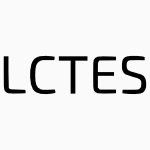 LCTES-SCOPES-2002-PalmLDM #compilation #question
LCTES-SCOPES-2002-PalmLDM #compilation #question- When to use a compilation service? (JP, HBL, AD, JEBM), pp. 194–203.
 WICSA-2001-Shaw #architecture #bound #communication #research #ubiquitous
WICSA-2001-Shaw #architecture #bound #communication #research #ubiquitous- When System Boundaries Dissolve: Research Opportunities in Software Architectures for Ubiquitous Computing and Communication (MS), p. 99–?.
 TACAS-2001-PasareanuDV #java #model checking #source code
TACAS-2001-PasareanuDV #java #model checking #source code- Finding Feasible Counter-examples when Model Checking Abstracted Java Programs (CSP, MBD, WV), pp. 284–298.
 CSMR-2001-SilvaLG #evaluation #legacy #migration #performance #simulation
CSMR-2001-SilvaLG #evaluation #legacy #migration #performance #simulation- A Simulation Model for the Performance Evaluation When Migrating Legacy Systems (PPdS, AHFL, PBG), pp. 210–215.
 STOC-2001-GroheSS #evaluation #query #question
STOC-2001-GroheSS #evaluation #query #question- When is the evaluation of conjunctive queries tractable? (MG, TS, LS), pp. 657–666.
 STOC-2001-MolloyR #graph
STOC-2001-MolloyR #graph- Colouring graphs when the number of colours is nearly the maximum degree (MM, BAR), pp. 462–470.
 KDD-2001-ZadroznyE #learning
KDD-2001-ZadroznyE #learning- Learning and making decisions when costs and probabilities are both unknown (BZ, CE), pp. 204–213.
 SEKE-2001-Vegas #question #testing #what
SEKE-2001-Vegas #question #testing #what- What Information is Relevant when Selecting Testing Techniques? (SV), pp. 45–52.
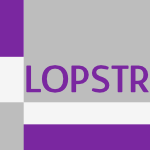 LOPSTR-2001-VanhoofB #matter
LOPSTR-2001-VanhoofB #matter- When Size Does Matter (WV, MB), pp. 129–147.
 PPDP-2001-SchulteS #bound #question
PPDP-2001-SchulteS #bound #question- When Do Bounds and Domain Propagation Lead to the Same Search Space? (CS, PJS), pp. 115–126.
 ICSE-2001-ShepardK #how
ICSE-2001-ShepardK #how- How to Do Inspections When There is No Time (TS, DK), pp. 718–719.
 SIGMOD-2000-Lomet #logic #online #using
SIGMOD-2000-Lomet #logic #online #using- High Speed On-line Backup When Using Logical Log Operations (DBL), pp. 34–45.
 ICALP-2000-AlonKKMS #scalability
ICALP-2000-AlonKKMS #scalability- Scalable Secure Storage when Half the System Is Faulty (NA, HK, MK, DM, JPS), pp. 576–587.
 ICEIS-2000-LousaM #workflow
ICEIS-2000-LousaM #workflow- Thoughts about the Organisational Contect When Adopting a Workflow System (ML, AM), pp. 527–528.
 GCSE-2000-Veldhuizen #java
GCSE-2000-Veldhuizen #java- Just When You Thought Your Little Language Was Safe: “Expression Templates” in Java (TLV), pp. 188–202.
 ICSE-2000-Rifkin #diagrams #precedence
ICSE-2000-Rifkin #diagrams #precedence- When the project absolutely must get done: marrying the organization chart with the precedence diagram (SR), pp. 588–596.
 ITiCSE-1999-Carter #collaboration #student #what
ITiCSE-1999-Carter #collaboration #student #what- Collaboration or plagiarism: what happens when students work together (JC), pp. 52–55.
 ITiCSE-1999-McCrackenW #why
ITiCSE-1999-McCrackenW #why- Why? When an otherwise successful intervention fails (MM, RW), pp. 9–12.
 DLT-1999-FreundF
DLT-1999-FreundF- Test tube systems: when two tubes are enough (RF, FF), pp. 338–350.
 ICFP-1999-Longley #functional #question
ICFP-1999-Longley #functional #question- When is a Functional Program Not a Functional Program? (JL), pp. 1–7.
 HCI-CCAD-1999-BookG #interface
HCI-CCAD-1999-BookG #interface- Mental effort increases when adding a voice control feature to a familiar interface (RB, MG), pp. 23–27.
 HCI-CCAD-1999-Reijonen
HCI-CCAD-1999-Reijonen- When one is more than twenty one (PR), pp. 558–562.
 TOOLS-USA-1999-CrichtonDW #data access #mobile #trust
TOOLS-USA-1999-CrichtonDW #data access #mobile #trust- When to Trust Mobile Objects: Access Control in the Jini(tm) Software System (CC, JD, JW), pp. 116–125.
 SOSP-1999-SantryFHVCO #file system
SOSP-1999-SantryFHVCO #file system- Deciding when to forget in the Elephant file system (DSS, MJF, NCH, ACV, RWC, JO), pp. 110–123.
 PODS-1998-SamaratiS
PODS-1998-SamaratiS- Generalizing Data to Provide Anonymity when Disclosing Information (Abstract) (PS, LS), p. 188.
 ITiCSE-1998-NorrisSS #comprehension #education
ITiCSE-1998-NorrisSS #comprehension #education- Educational technology over 25 years (panel): understanding the conditions when it works (CAN, JS, ES), p. 268.
 IWPC-1998-SomeL #compilation #parsing
IWPC-1998-SomeL #compilation #parsing- Parsing Minimization when Extracting Information from Code in the Presence of Conditional Compilation (SSS, TCL), pp. 118–125.
 CHI-1998-FriedlanderSM #exclamation
CHI-1998-FriedlanderSM #exclamation- Bullseye! when Fitts’ Law Doesn’t Fit (NF, KS, MMM), pp. 257–264.
 CHI-1998-NassKL #comparison #interface
CHI-1998-NassKL #comparison #interface- When My Face Is the Interface: An Experimental Comparison of Interacting With One’s Own Face or Someone Else’s Face (CN, EYK, EJL), pp. 148–154.
 CHI-1998-SchianoW #people
CHI-1998-SchianoW #people- The First Noble Truth of CyberSpace: People are People (even when they MOO) (DJS, SW), pp. 352–359.
 CHI-1998-Strommen #interface #learning
CHI-1998-Strommen #interface #learning- When the Interface is a Talking Dinosaur: Learning Across Media with ActiMates Barney (ES), pp. 288–295.
 STOC-1997-Trevisan #geometry
STOC-1997-Trevisan #geometry- When Hamming Meets Euclid: The Approximability of Geometric TSP and MST (Extended Abstract) (LT), pp. 21–29.
 DLT-1997-FernauS #how
DLT-1997-FernauS #how- How Powerful is Unconditional Transfer? — When UT meets AC (HF, FS), pp. 249–260.
 HCI-CC-1997-Kurosu #how
HCI-CC-1997-Kurosu #how- Wind from East: When Will it Blow and How (MK), pp. 141–144.
 PLILP-1997-Serrano #how #question
PLILP-1997-Serrano #how #question- Inline Expansion: When and How? (MS), pp. 143–157.
 CAV-1997-PandeyB #evaluation #symmetry #verification
CAV-1997-PandeyB #evaluation #symmetry #verification- Exploiting Symmetry When Verifying Transitor-Level Circuits by Symbolic Trajectory Evaluation (MP, REB), pp. 244–255.
 CAiSE-1996-SiauWB #bias #modelling
CAiSE-1996-SiauWB #bias #modelling- When Parents Need Not Have Children — Cognitive Biases in Information Modeling (KS, YW, IB), pp. 402–420.
 SAC-1995-Arnow #email #network #programming #using
SAC-1995-Arnow #email #network #programming #using- :-) When you grade that: using e-mail and the network in programming courses (DMA), pp. 10–13.
 CAV-1995-EmersonS #approach #model checking #symmetry
CAV-1995-EmersonS #approach #model checking #symmetry- Utilizing Symmetry when Model Checking under Fairness Assumptions: An Automata-theoretic Approach (EAE, APS), pp. 309–324.
 LICS-1995-Seth #complexity #fixpoint #logic #question
LICS-1995-Seth #complexity #fixpoint #logic #question- When Do Fixed Point Logics Capture Complexity Classes? (AS), pp. 353–363.
 CSEE-1994-Modesitt #re-engineering
CSEE-1994-Modesitt #re-engineering- When the Golden Arches Gang Aft Agley: Incorporating Software Engineering into Computer Science (KLM), pp. 35–61.
 LOPSTR-1994-SemeraroEMBP #case study #learning #logic #source code
LOPSTR-1994-SemeraroEMBP #case study #learning #logic #source code- Avoiding Non-Termination when Learning Logical Programs: A Case Study with FOIL and FOCL (GS, FE, DM, CB, MJP), pp. 183–198.
 PLILP-1994-Serrano #analysis #compilation #control flow #functional #higher-order #using
PLILP-1994-Serrano #analysis #compilation #control flow #functional #higher-order #using- Using Higher-Order Control Flow Analysis When Compiling Functional Languages (MS), pp. 447–448.
 PLDI-1993-KernsE #latency #memory management #nondeterminism #scheduling
PLDI-1993-KernsE #latency #memory management #nondeterminism #scheduling- Balanced Scheduling: Instruction Scheduling When Memory Latency is Uncertain (DRK, SJE), pp. 278–289.
 Best-of-PLDI-1993-KernsE93a #latency #memory management #nondeterminism #scheduling
Best-of-PLDI-1993-KernsE93a #latency #memory management #nondeterminism #scheduling- Balanced scheduling: instruction scheduling when memory latency is uncertain (with retrospective) (DRK, SJE), pp. 515–527.
 INTERCHI-1993-AllenBBMMNS #design #how #process #question #why
INTERCHI-1993-AllenBBMMNS #design #how #process #question #why- User involvement in the design process: why, when & how? (CDA, DB, VB, HHMJ, MM, JN, JMS), pp. 251–254.
 TOOLS-USA-1993-WhiteW #information management #object-oriented #question
TOOLS-USA-1993-WhiteW #information management #object-oriented #question- Utilization of Object-Oriented Technology in Mainstream Information Systems: if not now, when? (KW, EW), pp. 497–498.
 HT-ECHT-1992-FreiS #hypermedia
HT-ECHT-1992-FreiS #hypermedia- Making Use of Hypertext Links when Retrieving Information (HPF, DS), pp. 102–111.
 HT-ECHT-1992-Rouet #question
HT-ECHT-1992-Rouet #question- Cognitive Processing of Hyperdocuments: When Does Nonlinearity Help? (JFR), pp. 131–140.
 STOC-1992-Beigel
STOC-1992-Beigel- When Do Extra Majority Gates Help? Polylog(n) Majority Gates Are Equivalent to One (RB), pp. 450–454.
 TRI-Ada-C-1992-Beidler #component #education #tool support #what
TRI-Ada-C-1992-Beidler #component #education #tool support #what- Building on the Booch Components: What Can Be Learned When Modifying Real World Software Tools for Educational Use (JB), pp. 157–164.
 TRI-Ada-C-1992-HummerB #ada #design #hardware #safety
TRI-Ada-C-1992-HummerB #ada #design #hardware #safety- When Hardware Becomes Software: Designing a Safety-Critical System with Ada (JH, LB), pp. 538–544.
 STOC-1991-AgrawalKR #algorithm #approximate #network #problem
STOC-1991-AgrawalKR #algorithm #approximate #network #problem- When Trees Collide: An Approximation Algorithm for the Generalized Steiner Problem on Networks (AA, PNK, RR), pp. 134–144.
 STOC-1991-AngluinK #query
STOC-1991-AngluinK #query- When Won’t Membership Queries Help? (Extended Abstract) (DA, MK), pp. 444–454.
 OOPSLA-ECOOP-1990-Berlin #case study #experience #multi #reuse
OOPSLA-ECOOP-1990-Berlin #case study #experience #multi #reuse- When Objects Collide: Experiences with Reusing Multiple Class Hierarchies (LMB), pp. 181–193.
 LICS-1990-CleavelandS #proving #specification #using
LICS-1990-CleavelandS #proving #specification #using- When is “Partial” Adequate? A Logic-Based Proof Technique Using Partial Specifications (RC, BS), pp. 440–449.
 HT-1989-Lesk #what
HT-1989-Lesk #what- What To Do When There’s Too Much Information (ML), pp. 305–318.
 VLDB-1986-ZandenTB #correlation #data access
VLDB-1986-ZandenTB #correlation #data access- Estimating Block Accessses when Attributes are Correlated (BTVZ, HMT, DB), pp. 119–127.
 STOC-1986-Cleve #security
STOC-1986-Cleve #security- Limits on the Security of Coin Flips when Half the Processors Are Faulty (Extended Abstract) (RC), pp. 364–369.
 VLDB-1985-FischerG
VLDB-1985-FischerG- Determining when a Structure is a Nested Relation (PCF, DVG), pp. 171–180.
 ICSE-1984-MaibaumT #on the #what
ICSE-1984-MaibaumT #on the #what- On What Exactly Is Going On When Software Is Developed Step-by-Step (TSEM, WMT), pp. 528–533.
 DAC-1981-Burdick #design #formal method #process #what
DAC-1981-Burdick #design #formal method #process #what- What to do when the seat of your pants wears out — the formalization of the VLSI design process (EB), pp. 708–709.
 WICSA-2015-TamburriN #architecture #social
WICSA-2015-TamburriN #architecture #social DATE-2015-PozoSKM #question
DATE-2015-PozoSKM #question SIGMOD-2015-GuoZLTB #query
SIGMOD-2015-GuoZLTB #query ITiCSE-2015-Dickson #development #education #game studies #using
ITiCSE-2015-Dickson #development #education #game studies #using ICSME-2015-VendomeVBPGP #developer #why
ICSME-2015-VendomeVBPGP #developer #why SCAM-2015-FenskeSMS #detection #smell #variability
SCAM-2015-FenskeSMS #detection #smell #variability CHI-2015-CramerJ #communication #question #what #why
CHI-2015-CramerJ #communication #question #what #why CHI-2015-JensenRMG #challenge #design #game studies
CHI-2015-JensenRMG #challenge #design #game studies CHI-2015-KimCD #detection #interactive #monitoring
CHI-2015-KimCD #detection #interactive #monitoring CSCW-2015-OlteanuVC #social #social media #what
CSCW-2015-OlteanuVC #social #social media #what CSCW-2015-RedaelliC #coordination
CSCW-2015-RedaelliC #coordination CSCW-2015-Tufekci #algorithm
CSCW-2015-Tufekci #algorithm HCI-IT-2015-HaraUO #smarttech
HCI-IT-2015-HaraUO #smarttech HCI-UC-2015-ClarkeBK #experience #question #using #what
HCI-UC-2015-ClarkeBK #experience #question #using #what HIMI-IKC-2015-GavishN
HIMI-IKC-2015-GavishN HIMI-IKC-2015-KosakaN #behaviour #education
HIMI-IKC-2015-KosakaN #behaviour #education KDD-2015-SpasojevicLRB #network #social
KDD-2015-SpasojevicLRB #network #social SIGIR-2015-AllegrettiMHPJP
SIGIR-2015-AllegrettiMHPJP SIGIR-2015-YangS #information retrieval #privacy #security
SIGIR-2015-YangS #information retrieval #privacy #security SIGIR-2015-ZhangCQZL #multi #personalisation #recommendation #similarity
SIGIR-2015-ZhangCQZL #multi #personalisation #recommendation #similarity SAC-2015-HoldererAM #bibliography #constraints #workflow
SAC-2015-HoldererAM #bibliography #constraints #workflow ESEC-FSE-2015-BellerGPZ #developer #how #ide #why
ESEC-FSE-2015-BellerGPZ #developer #how #ide #why ICSE-v1-2015-GaoLCMW #interactive #question #testing #what
ICSE-v1-2015-GaoLCMW #interactive #question #testing #what ICSE-v1-2015-TufanoPBOPLP #smell #why
ICSE-v1-2015-TufanoPBOPLP #smell #why ICSE-v2-2015-GomezMMR #debugging
ICSE-v2-2015-GomezMMR #debugging ICSE-v2-2015-ShepherdDP #how #re-engineering #research
ICSE-v2-2015-ShepherdDP #how #re-engineering #research ISSTA-2015-Narayanaswamy #concurrent #performance
ISSTA-2015-Narayanaswamy #concurrent #performance DocEng-2014-FranzeMW #what
DocEng-2014-FranzeMW #what SIGMOD-2014-AgarwalMKTJMMS #approximate #performance #query #reliability
SIGMOD-2014-AgarwalMKTJMMS #approximate #performance #query #reliability SIGMOD-2014-CheungMS #database #lazy evaluation #named #query
SIGMOD-2014-CheungMS #database #lazy evaluation #named #query VLDB-2014-He #approximate #challenge #data transformation #hardware
VLDB-2014-He #approximate #challenge #data transformation #hardware ICSME-2014-AbreuCFMPS14a #detection #fault #locality #smell
ICSME-2014-AbreuCFMPS14a #detection #fault #locality #smell ICSME-2014-McIntoshANH #co-evolution #mining
ICSME-2014-McIntoshANH #co-evolution #mining FM-2014-FengZ #automaton #bisimulation #equivalence #probability
FM-2014-FengZ #automaton #bisimulation #equivalence #probability CHI-2014-VinesDM
CHI-2014-VinesDM CSCW-2014-KangKK #analysis #collaboration #information management #tool support
CSCW-2014-KangKK #analysis #collaboration #information management #tool support DUXU-DP-2014-AncientG #design #interface #people
DUXU-DP-2014-AncientG #design #interface #people DUXU-TMT-2014-WetzlingerAD #effectiveness #experience #performance #usability #user interface #using
DUXU-TMT-2014-WetzlingerAD #effectiveness #experience #performance #usability #user interface #using HIMI-AS-2014-GotzeBPB #quote
HIMI-AS-2014-GotzeBPB #quote ICEIS-v2-2014-BorattoC #clustering #collaboration #recommendation #using
ICEIS-v2-2014-BorattoC #clustering #collaboration #recommendation #using CIKM-2014-LimsopathamMO #modelling #multi #ranking #towards
CIKM-2014-LimsopathamMO #modelling #multi #ranking #towards ICML-c2-2014-0001NKA #estimation #probability
ICML-c2-2014-0001NKA #estimation #probability ICML-c2-2014-NgoT #modelling #relational
ICML-c2-2014-NgoT #modelling #relational ICML-c2-2014-VinnikovS #component #independence
ICML-c2-2014-VinnikovS #component #independence ICPR-2014-MesterC #statistics
ICPR-2014-MesterC #statistics ICPR-2014-YingWMYZ #problem #using
ICPR-2014-YingWMYZ #problem #using SIGIR-2014-SiY #information retrieval #privacy #security
SIGIR-2014-SiY #information retrieval #privacy #security HPDC-2014-MuCWZ #network #replication #state machine
HPDC-2014-MuCWZ #network #replication #state machine DAC-2013-ZhaiBS #parallel #realtime #streaming
DAC-2013-ZhaiBS #parallel #realtime #streaming PODS-2013-GheerbrantLS #evaluation #question
PODS-2013-GheerbrantLS #evaluation #question VLDB-2013-SimoesGG #algorithm #approximate #information management #performance #using
VLDB-2013-SimoesGG #algorithm #approximate #information management #performance #using CSMR-2013-PanichellaMMPOPL #how #traceability #using
CSMR-2013-PanichellaMMPOPL #how #traceability #using MSR-2013-AllamanisS #stack overflow #topic #what #why
MSR-2013-AllamanisS #stack overflow #topic #what #why WCRE-2013-LiXPZ #developer #how #question #what
WCRE-2013-LiXPZ #developer #how #question #what PLDI-2013-KongVSFPS #code generation
PLDI-2013-KongVSFPS #code generation CHI-2013-ErikssonAS
CHI-2013-ErikssonAS CHI-2013-GustafsonRB #comprehension #interface #visual notation
CHI-2013-GustafsonRB #comprehension #interface #visual notation CHI-2013-LewisUM #named
CHI-2013-LewisUM #named CHI-2013-RiceTOYWN #behaviour #game studies #interactive
CHI-2013-RiceTOYWN #behaviour #game studies #interactive CHI-2013-SenJHBC
CHI-2013-SenJHBC CSCW-2013-DoucetteGMNS #collaboration #how
CSCW-2013-DoucetteGMNS #collaboration #how DHM-SET-2013-BrooksB #game studies #using #video
DHM-SET-2013-BrooksB #game studies #using #video DUXU-CXC-2013-Webb #gamification #named
DUXU-CXC-2013-Webb #gamification #named HCI-UC-2013-KawabeIN #predict
HCI-UC-2013-KawabeIN #predict HIMI-D-2013-JinnaiONKAS #evaluation #multi
HIMI-D-2013-JinnaiONKAS #evaluation #multi HIMI-D-2013-Remy #in the cloud #simulation #standard
HIMI-D-2013-Remy #in the cloud #simulation #standard HIMI-D-2013-SilvaZGBSV #question
HIMI-D-2013-SilvaZGBSV #question HIMI-HSM-2013-CastronovoMM #interface #what
HIMI-HSM-2013-CastronovoMM #interface #what HIMI-HSM-2013-KosakaN #behaviour #education
HIMI-HSM-2013-KosakaN #behaviour #education KDD-2013-GaneshapillaiG #data-driven
KDD-2013-GaneshapillaiG #data-driven KDD-2013-RobardetSPF #dependence
KDD-2013-RobardetSPF #dependence KDD-2013-YuanCMSM #topic #twitter #what
KDD-2013-YuanCMSM #topic #twitter #what KDD-2013-ZhengLH #big data #named #quality
KDD-2013-ZhengLH #big data #named #quality KDIR-KMIS-2013-StroetmannLOE #difference #information management #performance #quality
KDIR-KMIS-2013-StroetmannLOE #difference #information management #performance #quality MLDM-2013-PrieditisL #bound #classification #performance #problem #using
MLDM-2013-PrieditisL #bound #classification #performance #problem #using RecSys-2013-CremonesiGQ #recommendation
RecSys-2013-CremonesiGQ #recommendation RecSys-2013-WilsonS #collaboration #recommendation
RecSys-2013-WilsonS #collaboration #recommendation SIGIR-2013-McCreadieMO #what
SIGIR-2013-McCreadieMO #what GPCE-2013-Flatt #question
GPCE-2013-Flatt #question SAC-2013-BuarqueCA #modelling #requirements
SAC-2013-BuarqueCA #modelling #requirements SAC-2013-CeccarelliGLNP #query #recommendation #semantics
SAC-2013-CeccarelliGLNP #query #recommendation #semantics ICSE-2013-ShangJHAHM #big data #data analysis #developer
ICSE-2013-ShangJHAHM #big data #data analysis #developer CSL-2013-Hunter #logic #metric #question
CSL-2013-Hunter #logic #metric #question DAC-2012-ChangB #simulation
DAC-2012-ChangB #simulation SIGMOD-2012-SuS #pipes and filters
SIGMOD-2012-SuS #pipes and filters FASE-2012-BradfieldS #calculus #qvt #recursion #μ-calculus
FASE-2012-BradfieldS #calculus #qvt #recursion #μ-calculus FoSSaCS-2012-AhmanCU #monad #question
FoSSaCS-2012-AhmanCU #monad #question CSMR-2012-BernardiCLPD #communication #debugging #developer #eclipse
CSMR-2012-BernardiCLPD #communication #debugging #developer #eclipse ICSM-2012-ThungLJLRD #debugging #question
ICSM-2012-ThungLJLRD #debugging #question SCAM-2012-BavotaCLPOS #debugging #empirical #refactoring
SCAM-2012-BavotaCLPOS #debugging #empirical #refactoring SAS-2012-HalbwachsH #sequence
SAS-2012-HalbwachsH #sequence STOC-2012-ChakrabartiFW #multi #network #problem
STOC-2012-ChakrabartiFW #multi #network #problem FM-2012-DormoyKL #component #configuration management #refinement
FM-2012-DormoyKL #component #configuration management #refinement CHI-2012-Densmore #mobile
CHI-2012-Densmore #mobile CHI-2012-TopkaraPLDWB #email #enterprise #quote #video
CHI-2012-TopkaraPLDWB #email #enterprise #quote #video EDOC-2012-GraupnerBNM #enterprise #social #social media
EDOC-2012-GraupnerBNM #enterprise #social #social media ECIR-2012-NeumayerBN12a #effectiveness #semantics
ECIR-2012-NeumayerBN12a #effectiveness #semantics KDD-2012-Davidson #clustering #comprehension #constraints
KDD-2012-Davidson #clustering #comprehension #constraints RecSys-2012-EkstrandR #algorithm #predict #recommendation
RecSys-2012-EkstrandR #algorithm #predict #recommendation SIGIR-2012-LiuADMS #comprehension #web
SIGIR-2012-LiuADMS #comprehension #web SIGIR-2012-Sakai #evaluation #information retrieval #mobile #towards #what
SIGIR-2012-Sakai #evaluation #information retrieval #mobile #towards #what ECOOP-2012-Odersky #compilation
ECOOP-2012-Odersky #compilation RE-2012-MaglyasNS #question #what
RE-2012-MaglyasNS #question #what REFSQ-2012-AnhCCHFA #collaboration #component #open source #requirements
REFSQ-2012-AnhCCHFA #collaboration #component #open source #requirements ICSE-2012-CeccatoMMNT #debugging #effectiveness #empirical #random testing #testing
ICSE-2012-CeccatoMMNT #debugging #effectiveness #empirical #random testing #testing ICSE-2012-ForbesKR #challenge #navigation #open source #research
ICSE-2012-ForbesKR #challenge #navigation #open source #research OSDI-2012-LiPCGPR #consistency #performance
OSDI-2012-LiPCGPR #consistency #performance CAV-2012-HanJ #satisfiability
CAV-2012-HanJ #satisfiability ICST-2012-ChenLYS #question #testing #user interface #what
ICST-2012-ChenLYS #question #testing #user interface #what ICST-2012-ChoudharyDBJOI #challenge #internet #modelling #security #testing
ICST-2012-ChoudharyDBJOI #challenge #internet #modelling #security #testing LICS-2012-ChatterjeeD #game studies #how #probability
LICS-2012-ChatterjeeD #game studies #how #probability ECSA-2011-Axelsson #architecture #embedded #how #nondeterminism #on the
ECSA-2011-Axelsson #architecture #embedded #how #nondeterminism #on the DATE-2011-JhaLMR #simulation #statistics #trade-off #verification
DATE-2011-JhaLMR #simulation #statistics #trade-off #verification DocEng-2011-CazenaveQR #css #html
DocEng-2011-CazenaveQR #css #html HT-2011-Gayo-Avello
HT-2011-Gayo-Avello ICDAR-2011-LoprestiN #problem #question
ICDAR-2011-LoprestiN #problem #question CSEET-2011-RadermacherW #empirical #interactive #programming #student #using
CSEET-2011-RadermacherW #empirical #interactive #programming #student #using ITiCSE-2011-AmbrosioM #education #matter #what
ITiCSE-2011-AmbrosioM #education #matter #what FoSSaCS-2011-AtkeyJG #induction #question #refinement
FoSSaCS-2011-AtkeyJG #induction #question #refinement ICSM-2011-Kemmerer #how #what
ICSM-2011-Kemmerer #how #what ICALP-v1-2011-HermelinMLW
ICALP-v1-2011-HermelinMLW CHI-2011-BaumerS #design
CHI-2011-BaumerS #design CHI-2011-KelleyBCS #question
CHI-2011-KelleyBCS #question CHI-2011-ONeillMCG
CHI-2011-ONeillMCG CHI-2011-SauroL #design #question #usability
CHI-2011-SauroL #design #question #usability CHI-2011-YeeDYN
CHI-2011-YeeDYN DHM-2011-TangoMAP #automation #behaviour #classification
DHM-2011-TangoMAP #automation #behaviour #classification DUXU-v1-2011-PrabhalaLG #people #question #what #word
DUXU-v1-2011-PrabhalaLG #people #question #what #word HCI-UA-2011-LargeB #comparison #interface #retrieval #using #visualisation
HCI-UA-2011-LargeB #comparison #interface #retrieval #using #visualisation CIKM-2011-AgrawalIV
CIKM-2011-AgrawalIV CIKM-2011-ElsayedLM #approximate #performance #retrieval
CIKM-2011-ElsayedLM #approximate #performance #retrieval SIGIR-2011-LvZ #documentation #exclamation
SIGIR-2011-LvZ #documentation #exclamation OOPSLA-2011-SonMS #named #security #what
OOPSLA-2011-SonMS #named #security #what GPCE-2011-RibeiroQBTBS #dependence #maintenance #on the #product line
GPCE-2011-RibeiroQBTBS #dependence #maintenance #on the #product line ESEC-FSE-2011-AliSSONM #monitoring #social
ESEC-FSE-2011-AliSSONM #monitoring #social ICST-2011-YuSSR #embedded #testing #using
ICST-2011-YuSSR #embedded #testing #using ASE-2010-KessentiniVS #identification #risk management
ASE-2010-KessentiniVS #identification #risk management ASE-2010-KocaguneliGMYK #estimation
ASE-2010-KocaguneliGMYK #estimation PODS-2010-HartmannL #dependence #logic #sql
PODS-2010-HartmannL #dependence #logic #sql ITiCSE-2010-DoddsLB #biology #collaboration
ITiCSE-2010-DoddsLB #biology #collaboration ITiCSE-2010-Williams-KingAC #named
ITiCSE-2010-Williams-KingAC #named FoSSaCS-2010-DemriS #decidability #ltl #model checking
FoSSaCS-2010-DemriS #decidability #ltl #model checking TACAS-2010-AbdullaCHMV #anti #simulation
TACAS-2010-AbdullaCHMV #anti #simulation MSR-2010-BachmannB #correlation #dataset #debugging #process #quality #re-engineering
MSR-2010-BachmannB #correlation #dataset #debugging #process #quality #re-engineering ICALP-v1-2010-Welzl #constraints #satisfiability
ICALP-v1-2010-Welzl #constraints #satisfiability CHI-2010-HornofZH #multimodal
CHI-2010-HornofZH #multimodal KDD-2010-AttenbergP #classification #learning #modelling #why
KDD-2010-AttenbergP #classification #learning #modelling #why KDD-2010-YuHCL #classification #in memory #linear #memory management #scalability
KDD-2010-YuHCL #classification #in memory #linear #memory management #scalability SPLC-2010-BelategiSE #embedded #product line #variability
SPLC-2010-BelategiSE #embedded #product line #variability ICST-2010-JobstlWAW #consistency #execution #smt #symbolic computation #testing
ICST-2010-JobstlWAW #consistency #execution #smt #symbolic computation #testing HT-2009-RomanelloBBC #information management #parsing
HT-2009-RomanelloBBC #information management #parsing VLDB-2009-KraskaHAK #consistency #in the cloud #matter
VLDB-2009-KraskaHAK #consistency #in the cloud #matter ITiCSE-2009-Kumar #education
ITiCSE-2009-Kumar #education CSMR-2009-RibeiroB #product line
CSMR-2009-RibeiroB #product line ICSM-2009-JadallahGMR
ICSM-2009-JadallahGMR ICALP-v2-2009-BaierBBB #automaton #question
ICALP-v2-2009-BaierBBB #automaton #question CHI-2009-BrumbySH #adaptation #constraints #how
CHI-2009-BrumbySH #adaptation #constraints #how CHI-2009-BuscherCM #eye tracking #predict #using #web #what
CHI-2009-BuscherCM #eye tracking #predict #using #web #what CHI-2009-GaverBKBJ #design #how #what
CHI-2009-GaverBKBJ #design #how #what CHI-2009-HogganCBK #feedback #question
CHI-2009-HogganCBK #feedback #question CHI-2009-KarlsonBS #comprehension #mobile
CHI-2009-KarlsonBS #comprehension #mobile CHI-2009-KlasnjaCJGLPW #privacy #quote
CHI-2009-KlasnjaCJGLPW #privacy #quote CHI-2009-MarshallFHRHRYD #interactive #physics #using
CHI-2009-MarshallFHRHRYD #interactive #physics #using OCSC-2009-EgertJB #social #social media
OCSC-2009-EgertJB #social #social media ICML-2009-PoczosASGS #exclamation #learning
ICML-2009-PoczosASGS #exclamation #learning ICML-2009-RaykarYZJFVBM #learning #multi #trust
ICML-2009-RaykarYZJFVBM #learning #multi #trust KDD-2009-CrookFKL #web
KDD-2009-CrookFKL #web KMIS-2009-MorenoCCAMCG #case study #experience #research
KMIS-2009-MorenoCCAMCG #case study #experience #research SIGIR-2009-HauffA #effectiveness #performance #predict #query #question
SIGIR-2009-HauffA #effectiveness #performance #predict #query #question SIGIR-2009-OulasvirtaHS
SIGIR-2009-OulasvirtaHS REFSQ-2009-Dzamashvili-FogelstromBAH #requirements
REFSQ-2009-Dzamashvili-FogelstromBAH #requirements SAC-2009-Fernandez-MarquezA
SAC-2009-Fernandez-MarquezA SAC-2009-NetoFP #named #people #using
SAC-2009-NetoFP #named #people #using VLDB-2008-HoseKMS #question
VLDB-2008-HoseKMS #question FASE-2008-BowlesM
FASE-2008-BowlesM DLT-2008-CsimaK #decidability #question #reachability
DLT-2008-CsimaK #decidability #question #reachability ICALP-B-2008-GomezGP #commutative #question
ICALP-B-2008-GomezGP #commutative #question ICALP-C-2008-HochS #on the
ICALP-C-2008-HochS #on the CHI-2008-ChauMF #what
CHI-2008-ChauMF #what CHI-2008-RohsO #lens
CHI-2008-RohsO #lens CAiSE-2008-Godet-BarDR #interactive
CAiSE-2008-Godet-BarDR #interactive ICEIS-DISI-2008-PennesiHRWS #what #why
ICEIS-DISI-2008-PennesiHRWS #what #why CIKM-2008-BroderCFGJMMP #learning
CIKM-2008-BroderCFGJMMP #learning ICML-2008-FinleyJ
ICML-2008-FinleyJ ICPR-2008-SeiffertKHN #classification #named #performance
ICPR-2008-SeiffertKHN #classification #named #performance SIGIR-2008-RahurkarC #predict
SIGIR-2008-RahurkarC #predict REFSQ-2008-WelshS #adaptation #identification #problem
REFSQ-2008-WelshS #adaptation #identification #problem SAC-2008-FariaM #recognition #scalability #speech
SAC-2008-FariaM #recognition #scalability #speech SAC-2008-GrovPMI #component #concurrent #coordination
SAC-2008-GrovPMI #component #concurrent #coordination CASE-2007-XiaoWL #flexibility #simulation
CASE-2007-XiaoWL #flexibility #simulation DAC-2007-BacchiniHFRLTPZ #question #verification
DAC-2007-BacchiniHFRLTPZ #question #verification VLDB-2007-IvesDR #adaptation #how #query #question #what #why
VLDB-2007-IvesDR #adaptation #how #query #question #what #why CHI-2007-KalnikaiteW #memory management #people #why
CHI-2007-KalnikaiteW #memory management #people #why HCI-IPT-2007-AuerD #difference
HCI-IPT-2007-AuerD #difference ICEIS-DISI-2007-ChristianssonS #open data #problem #standard
ICEIS-DISI-2007-ChristianssonS #open data #problem #standard ECIR-2007-MelucciP07a #named #order #rank
ECIR-2007-MelucciP07a #named #order #rank ICML-2007-YamazakiKWSM #fault
ICML-2007-YamazakiKWSM #fault MLDM-2007-MendezCGRD #performance
MLDM-2007-MendezCGRD #performance ICSE-2007-PistoiaFFY #enterprise #modelling #policy #security #validation
ICSE-2007-PistoiaFFY #enterprise #modelling #policy #security #validation SIGMOD-2006-DeshpandeHR #adaptation #how #query #what #why
SIGMOD-2006-DeshpandeHR #adaptation #how #query #what #why ITiCSE-2006-Boetje #education #re-engineering
ITiCSE-2006-Boetje #education #re-engineering PEPM-2006-SwadiTKP #approach #monad #staging
PEPM-2006-SwadiTKP #approach #monad #staging STOC-2006-Feige #on the
STOC-2006-Feige #on the FM-2006-GenonMM #algorithm #distributed #ltl #monitoring #performance #sequence
FM-2006-GenonMM #algorithm #distributed #ltl #monitoring #performance #sequence CSCW-2006-McNeeKK #recommendation #research
CSCW-2006-McNeeKK #recommendation #research SIGAda-2006-Mosley #embedded #legacy
SIGAda-2006-Mosley #embedded #legacy SIGAda-2006-ShindiC #benchmark #metric #performance
SIGAda-2006-ShindiC #benchmark #metric #performance ICPR-v2-2006-FrintropJC
ICPR-v2-2006-FrintropJC KR-2006-Rector #information management #representation
KR-2006-Rector #information management #representation GPCE-2006-ApelB #aspect-oriented #case study
GPCE-2006-ApelB #aspect-oriented #case study RE-2006-Cleland-Huang #how #question #requirements #traceability
RE-2006-Cleland-Huang #how #question #requirements #traceability HPDC-2006-WeinbergS #game studies
HPDC-2006-WeinbergS #game studies MBT-2006-AichernigG #modelling #testing
MBT-2006-AichernigG #modelling #testing WICSA-2005-LandBLC #architecture #case study #experience #industrial #integration
WICSA-2005-LandBLC #architecture #case study #experience #industrial #integration ASE-2005-Zheng #source code #testing
ASE-2005-Zheng #source code #testing HT-2005-Walker #hypermedia
HT-2005-Walker #hypermedia PODS-2005-Dobra #approximate #question
PODS-2005-Dobra #approximate #question SIGMOD-2005-ChaudhuriKR #query #question #sql #trust
SIGMOD-2005-ChaudhuriKR #query #question #sql #trust VLDB-2005-YuP #adaptation #semantics
VLDB-2005-YuP #adaptation #semantics ITiCSE-2005-Barker #experience #question #student
ITiCSE-2005-Barker #experience #question #student MSR-2005-SliwerskiZZ #question
MSR-2005-SliwerskiZZ #question WCRE-2005-KimPW #automation #detection
WCRE-2005-KimPW #automation #detection CHI-2005-CarterM
CHI-2005-CarterM CHI-2005-ConsolvoSMLTP #people #social #what #why
CHI-2005-ConsolvoSMLTP #people #social #what #why CHI-2005-Kaki #category theory #documentation #named #ranking
CHI-2005-Kaki #category theory #documentation #named #ranking CHI-2005-PatilL #configuration management #privacy #what
CHI-2005-PatilL #configuration management #privacy #what SEKE-2005-JuricWM #automation #case study #component #experience #generative #off the shelf
SEKE-2005-JuricWM #automation #case study #component #experience #generative #off the shelf SIGIR-2005-AllanCL #information retrieval #question
SIGIR-2005-AllanCL #information retrieval #question SAC-2005-ToKS #exclamation #mobile #network
SAC-2005-ToKS #exclamation #mobile #network ICSE-2005-JacksonZ #question
ICSE-2005-JacksonZ #question CC-2005-Zeller #abstraction
CC-2005-Zeller #abstraction CADE-2005-Dowek #consistency #question #what
CADE-2005-Dowek #consistency #question #what ICLP-2005-Ray #horn clause #logic #query
ICLP-2005-Ray #horn clause #logic #query DAC-2004-StrojwasCGHKLNPT #fault #question
DAC-2004-StrojwasCGHKLNPT #fault #question HT-2004-ZhouHR #hypermedia #peer-to-peer
HT-2004-ZhouHR #hypermedia #peer-to-peer SIGMOD-2004-IpeirotisG #database #using
SIGMOD-2004-IpeirotisG #database #using CHI-2004-AdamczykB #execution
CHI-2004-AdamczykB #execution CHI-2004-BakerCKW #behaviour #game studies #student
CHI-2004-BakerCKW #behaviour #game studies #student CAiSE-2004-Nilsson #information management #modelling
CAiSE-2004-Nilsson #information management #modelling ICEIS-v5-2004-JantkeLGGTT #data mining #learning #mining
ICEIS-v5-2004-JantkeLGGTT #data mining #learning #mining KDD-2004-KantarciogluJC #data mining #mining #privacy #question
KDD-2004-KantarciogluJC #data mining #mining #privacy #question FoSSaCS-2003-BonevaT
FoSSaCS-2003-BonevaT CHI-2003-ShechtmanH #difference #how #people
CHI-2003-ShechtmanH #difference #how #people ECIR-2003-FisherE #classification
ECIR-2003-FisherE #classification ICML-2003-JensenNH #bias #relational
ICML-2003-JensenNH #bias #relational SIGIR-2003-BillerbeckZ #query
SIGIR-2003-BillerbeckZ #query CAV-2003-Obdrzalek #bound #calculus #model checking #performance #μ-calculus
CAV-2003-Obdrzalek #bound #calculus #model checking #performance #μ-calculus CSEET-2002-KroneJS #case study #education #industrial
CSEET-2002-KroneJS #case study #education #industrial ITiCSE-2002-Hazzan #abstraction #concept #learning
ITiCSE-2002-Hazzan #abstraction #concept #learning STOC-2002-CryanD #algorithm #approximate #constant #polynomial
STOC-2002-CryanD #algorithm #approximate #constant #polynomial ICFP-2002-Flatt #composition #metaprogramming #question
ICFP-2002-Flatt #composition #metaprogramming #question IFL-2002-AchtenAP
IFL-2002-AchtenAP CHI-2002-VoidaNM
CHI-2002-VoidaNM ICPR-v2-2002-GuillametV #matrix #metric #using
ICPR-v2-2002-GuillametV #matrix #metric #using ICPR-v2-2002-LladoP
ICPR-v2-2002-LladoP SEKE-2002-JorgensenM #development #how #predict #question #why
SEKE-2002-JorgensenM #development #how #predict #question #why RE-2002-CrookILN #anti #requirements #security
RE-2002-CrookILN #anti #requirements #security LCTES-SCOPES-2002-PalmLDM #compilation #question
LCTES-SCOPES-2002-PalmLDM #compilation #question WICSA-2001-Shaw #architecture #bound #communication #research #ubiquitous
WICSA-2001-Shaw #architecture #bound #communication #research #ubiquitous TACAS-2001-PasareanuDV #java #model checking #source code
TACAS-2001-PasareanuDV #java #model checking #source code CSMR-2001-SilvaLG #evaluation #legacy #migration #performance #simulation
CSMR-2001-SilvaLG #evaluation #legacy #migration #performance #simulation STOC-2001-GroheSS #evaluation #query #question
STOC-2001-GroheSS #evaluation #query #question STOC-2001-MolloyR #graph
STOC-2001-MolloyR #graph KDD-2001-ZadroznyE #learning
KDD-2001-ZadroznyE #learning SEKE-2001-Vegas #question #testing #what
SEKE-2001-Vegas #question #testing #what LOPSTR-2001-VanhoofB #matter
LOPSTR-2001-VanhoofB #matter PPDP-2001-SchulteS #bound #question
PPDP-2001-SchulteS #bound #question ICSE-2001-ShepardK #how
ICSE-2001-ShepardK #how SIGMOD-2000-Lomet #logic #online #using
SIGMOD-2000-Lomet #logic #online #using ICALP-2000-AlonKKMS #scalability
ICALP-2000-AlonKKMS #scalability ICEIS-2000-LousaM #workflow
ICEIS-2000-LousaM #workflow GCSE-2000-Veldhuizen #java
GCSE-2000-Veldhuizen #java ICSE-2000-Rifkin #diagrams #precedence
ICSE-2000-Rifkin #diagrams #precedence ITiCSE-1999-Carter #collaboration #student #what
ITiCSE-1999-Carter #collaboration #student #what ITiCSE-1999-McCrackenW #why
ITiCSE-1999-McCrackenW #why DLT-1999-FreundF
DLT-1999-FreundF ICFP-1999-Longley #functional #question
ICFP-1999-Longley #functional #question HCI-CCAD-1999-BookG #interface
HCI-CCAD-1999-BookG #interface HCI-CCAD-1999-Reijonen
HCI-CCAD-1999-Reijonen TOOLS-USA-1999-CrichtonDW #data access #mobile #trust
TOOLS-USA-1999-CrichtonDW #data access #mobile #trust SOSP-1999-SantryFHVCO #file system
SOSP-1999-SantryFHVCO #file system PODS-1998-SamaratiS
PODS-1998-SamaratiS ITiCSE-1998-NorrisSS #comprehension #education
ITiCSE-1998-NorrisSS #comprehension #education IWPC-1998-SomeL #compilation #parsing
IWPC-1998-SomeL #compilation #parsing CHI-1998-FriedlanderSM #exclamation
CHI-1998-FriedlanderSM #exclamation CHI-1998-NassKL #comparison #interface
CHI-1998-NassKL #comparison #interface CHI-1998-SchianoW #people
CHI-1998-SchianoW #people CHI-1998-Strommen #interface #learning
CHI-1998-Strommen #interface #learning STOC-1997-Trevisan #geometry
STOC-1997-Trevisan #geometry DLT-1997-FernauS #how
DLT-1997-FernauS #how HCI-CC-1997-Kurosu #how
HCI-CC-1997-Kurosu #how PLILP-1997-Serrano #how #question
PLILP-1997-Serrano #how #question CAV-1997-PandeyB #evaluation #symmetry #verification
CAV-1997-PandeyB #evaluation #symmetry #verification CAiSE-1996-SiauWB #bias #modelling
CAiSE-1996-SiauWB #bias #modelling SAC-1995-Arnow #email #network #programming #using
SAC-1995-Arnow #email #network #programming #using CAV-1995-EmersonS #approach #model checking #symmetry
CAV-1995-EmersonS #approach #model checking #symmetry LICS-1995-Seth #complexity #fixpoint #logic #question
LICS-1995-Seth #complexity #fixpoint #logic #question CSEE-1994-Modesitt #re-engineering
CSEE-1994-Modesitt #re-engineering LOPSTR-1994-SemeraroEMBP #case study #learning #logic #source code
LOPSTR-1994-SemeraroEMBP #case study #learning #logic #source code PLILP-1994-Serrano #analysis #compilation #control flow #functional #higher-order #using
PLILP-1994-Serrano #analysis #compilation #control flow #functional #higher-order #using PLDI-1993-KernsE #latency #memory management #nondeterminism #scheduling
PLDI-1993-KernsE #latency #memory management #nondeterminism #scheduling Best-of-PLDI-1993-KernsE93a #latency #memory management #nondeterminism #scheduling
Best-of-PLDI-1993-KernsE93a #latency #memory management #nondeterminism #scheduling INTERCHI-1993-AllenBBMMNS #design #how #process #question #why
INTERCHI-1993-AllenBBMMNS #design #how #process #question #why TOOLS-USA-1993-WhiteW #information management #object-oriented #question
TOOLS-USA-1993-WhiteW #information management #object-oriented #question HT-ECHT-1992-FreiS #hypermedia
HT-ECHT-1992-FreiS #hypermedia HT-ECHT-1992-Rouet #question
HT-ECHT-1992-Rouet #question STOC-1992-Beigel
STOC-1992-Beigel TRI-Ada-C-1992-Beidler #component #education #tool support #what
TRI-Ada-C-1992-Beidler #component #education #tool support #what TRI-Ada-C-1992-HummerB #ada #design #hardware #safety
TRI-Ada-C-1992-HummerB #ada #design #hardware #safety STOC-1991-AgrawalKR #algorithm #approximate #network #problem
STOC-1991-AgrawalKR #algorithm #approximate #network #problem STOC-1991-AngluinK #query
STOC-1991-AngluinK #query OOPSLA-ECOOP-1990-Berlin #case study #experience #multi #reuse
OOPSLA-ECOOP-1990-Berlin #case study #experience #multi #reuse LICS-1990-CleavelandS #proving #specification #using
LICS-1990-CleavelandS #proving #specification #using HT-1989-Lesk #what
HT-1989-Lesk #what VLDB-1986-ZandenTB #correlation #data access
VLDB-1986-ZandenTB #correlation #data access STOC-1986-Cleve #security
STOC-1986-Cleve #security VLDB-1985-FischerG
VLDB-1985-FischerG ICSE-1984-MaibaumT #on the #what
ICSE-1984-MaibaumT #on the #what DAC-1981-Burdick #design #formal method #process #what
DAC-1981-Burdick #design #formal method #process #what









